350
2017 ANNUAL REPORT
Letter from the Executive Director:
Dear friends,
So much happened last year that we’d like to help connect the dots with the stories you’re about to read.
Since 350.org began, our unifying aim has been to build a climate movement that can win the battle of ideas on climate quickly enough to matter and for the necessary policy changes to be made. At our best, we work like a tide that helps gather the climate movement around it, to enable it all to feel like one big wave rising, which is why in 2017 we continued to incubate numerous other efforts, create fellowships, grow a network of hundreds of affiliates, and build strategic capacity in key countries.
We hold genuine relationships with many groups pushing the envelope on direct action campaigns — and in 2017 we helped Ende Gelände in Germany to bring thousands to stop one of Germany’s largest coal mines for the day. We also work with allies in targeting major European investor groups — and in 2017 we called on the Caisse des Dépôts Group, a French public sector financial institution worth billions of Euros, to divest.
We also help convene numerous partners around major campaign moments and mobilizations, and connect people across disparate politics and approaches to strategy. We did that in 2017 with the People’s Climate March, the Promise to Protect pledge against the Keystone XL pipeline, the anti-fracking campaign in Brazil, and a new regional strategy to curb coal production in East Asia.
In 2017, we continued to hire talented local campaigners who are trusted by movement groups and who can also influence insiders. We’ll never be seen as exclusively outsiders or insiders for this reason, and that enables a fundamental nimbleness and ability to convene while also driving an agenda.
Our unique 350.org approach was profiled in the journal Organization and Environment: “As… radical ideas pushed their way in, they [350.org] carried liberal ideas (carbon taxes, cap-and-trade, clean energy subsidies, etc.) to the center of the debate along with them. The conservative position got crowded out, at least partially. The radical position of divestment helped recenter the US climate debate around alternative solutions (rather than “do nothing” versus “do something”) in an enduring way.”
We have been using this approach to push the “100% renewable energy” and “keep it in the ground” messages, precisely because the 100% part has become a shared demand among many key actors. The demands, which we’ve been working to build even more support behind and that are getting noticed by economists, are “no new fossil fuel projects” and “not a penny more in financing of oil, coal, and gas.” We took these demands to the Macron Finance Summit last December, and we are now taking them to thousands of cities and towns all over the world, and we will take them to the Global Climate Action Summit in September 2018.
You’ve been by our side every step of the way, and we are eager to join hands with you again for the future of the climate movement as we expand our work even further to take on this next wave of the Fossil Free fight.
With deep gratitude and resolve,

May Boeve, Executive Director
Actions + Campaigns
Changing the Political Window of Opportunity in the US
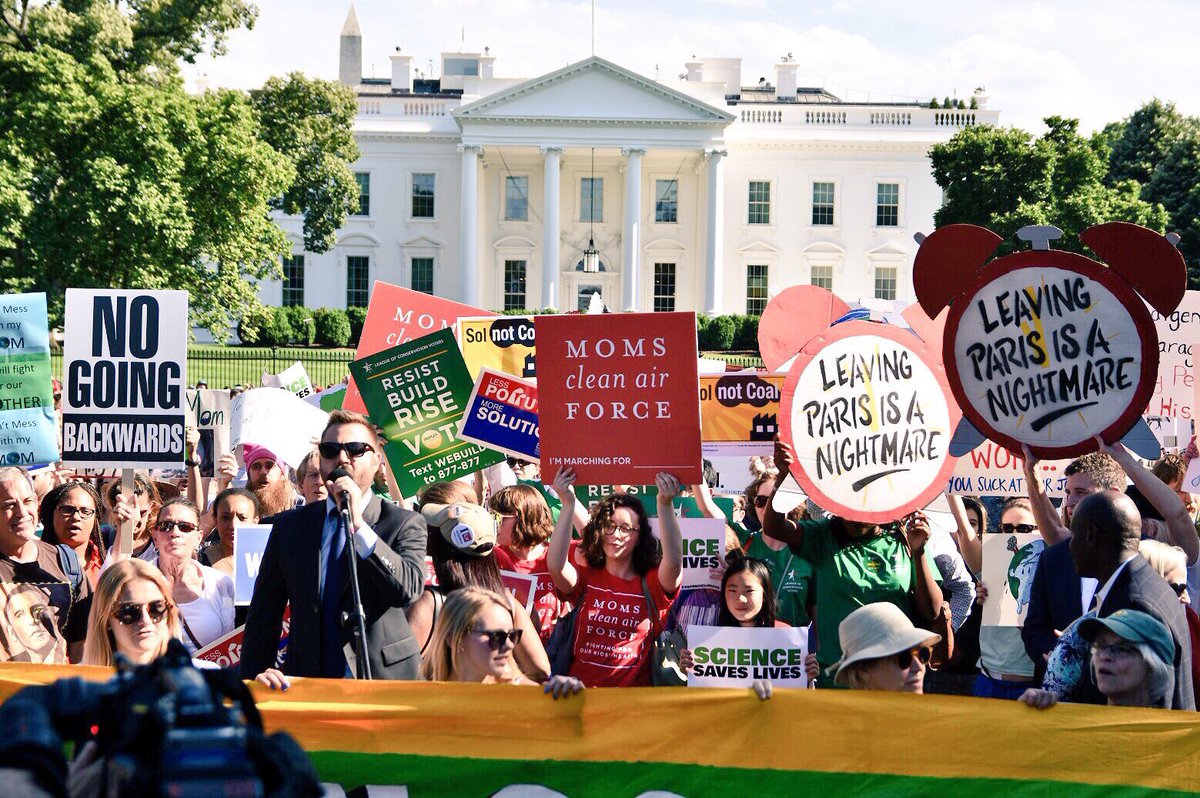
Photo: 350.org
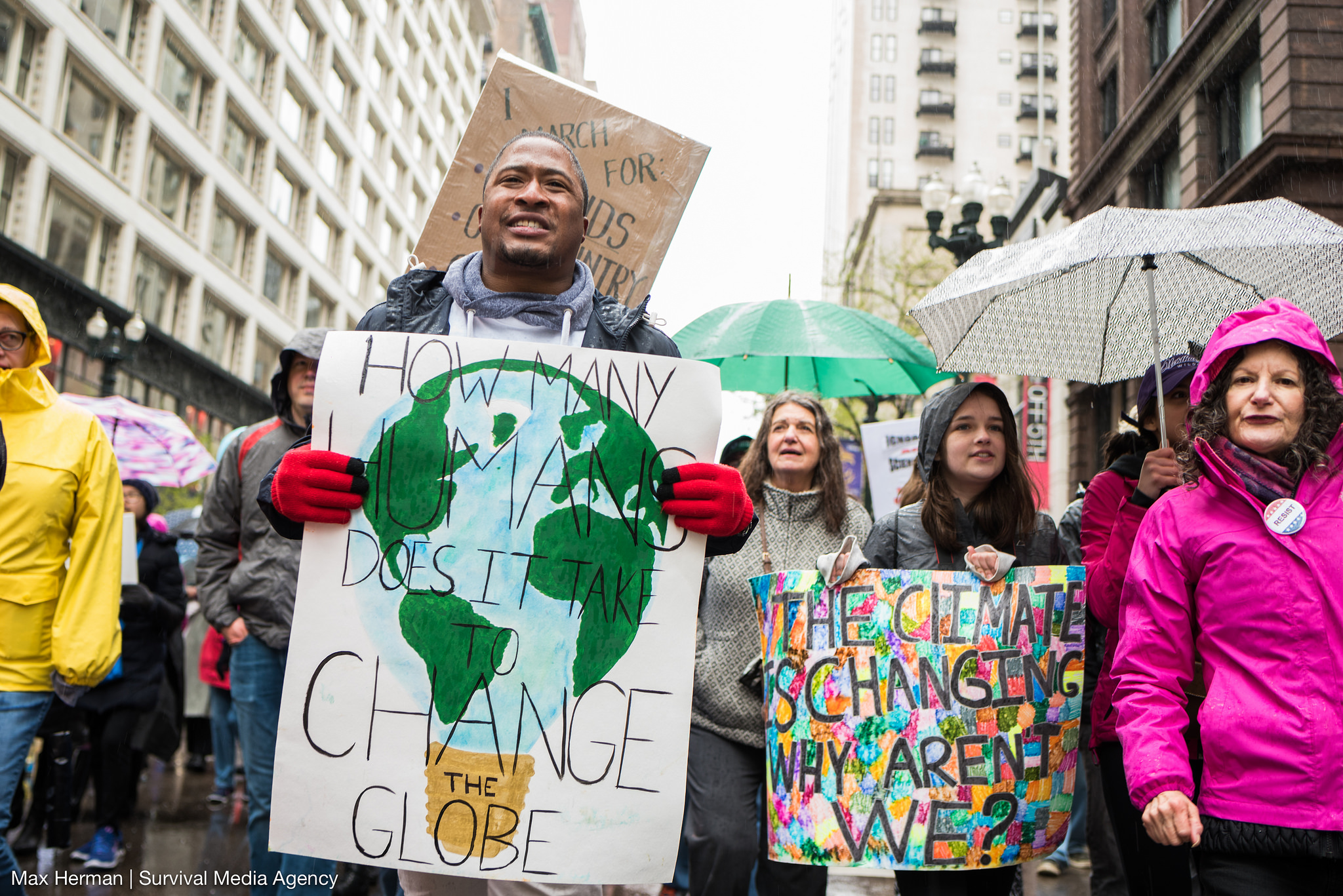
Photo: Bora Chung
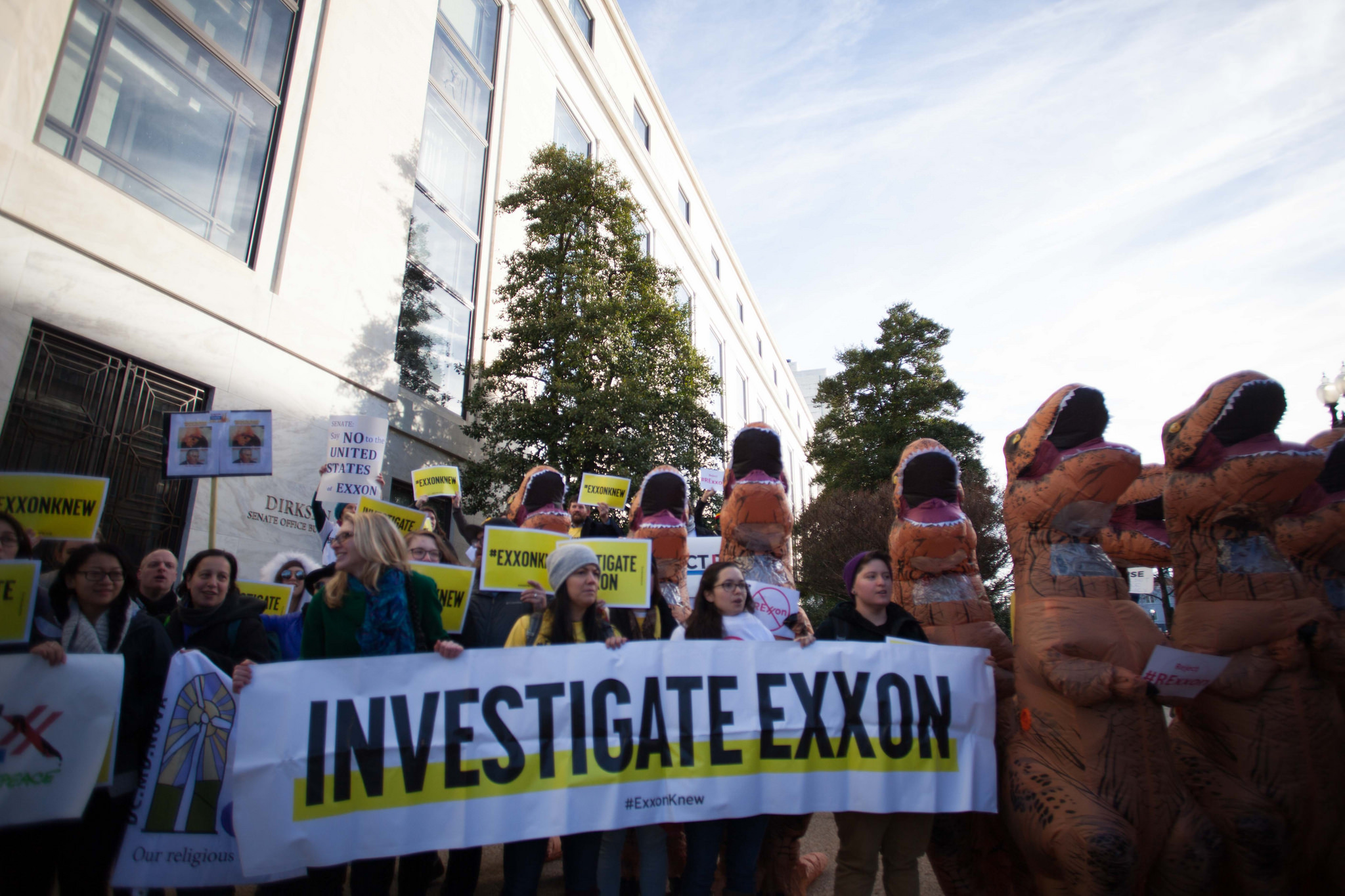
Photo: Eman Mohammed
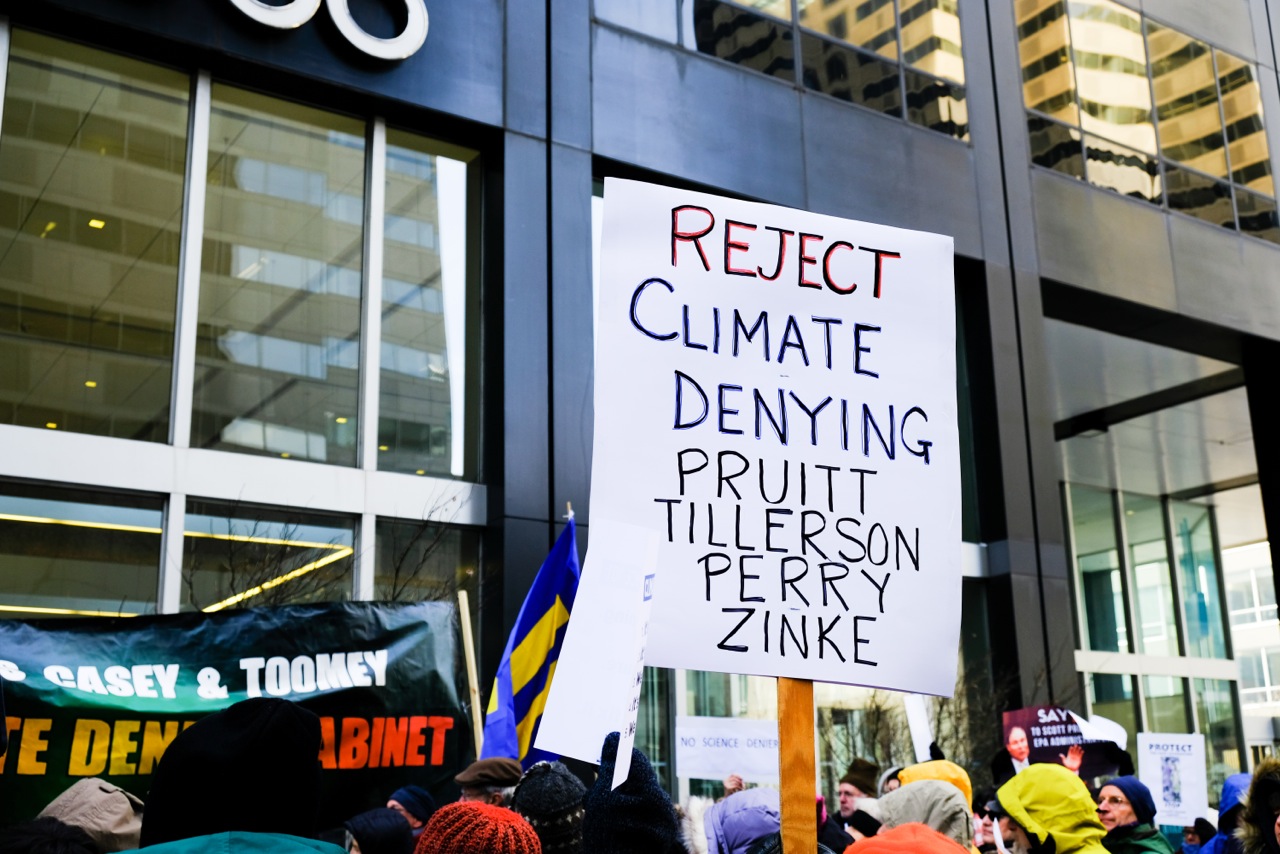
Photo: Luke Rein
People’s Climate March

We worked with over 100 partner organizations to plan the 2017 People’s Climate March, a massive mobilization to stand up for climate, jobs, and justice and push back against the Trump Administration’s retrograde agenda in cities across the US.
After months of organizing and working with coalition partners, nearly 200,000 people marched through Washington, DC on April 29, 2017, to demonstrate cross-movement resistance that put forward our own vision of a clean energy economy that works for all. Not only that, but hundreds of thousands showed up at 370 sister marches across the country. We supported many frontline organizations participating in the People’s Climate March by amplifying their work through social media, drawing attention to the frontline organizing process, and providing financial support.
Pushing back against Trump’s Fossil-Fueled Agenda
350.org has been at the forefront of the resistance to Donald Trump’s fossil-fueled agenda. Last January, soon after Trump’s inauguration, we demonstrated mass public opposition to Trump’s appointment of former CEO of ExxonMobil, Rex Tillerson, as Secretary of State. 350.org organized more than 200 people to protest outside of Rex Tillerson’s Senate hearing. We also organized thousands that same month to rally at their Senators’ offices during the ‘Day Against Denial’ to tell them to oppose the fossil fuel industry puppets that Trump nominated for his cabinet. As Trump’s nominees were confirmed by the Senate and appointed, we helped drive the narrative about their climate denial and deep ties to the fossil fuel industry.
We also responded quickly to new developments from Trump’s short-sighted administration. When Trump said he would pull the U.S. out of the Paris Climate Agreement, we organized a full-throated resistance for the climate. Immediately after Trump’s announcement, we mobilized hundreds of actions around the U.S. to call for climate action from local governments. Over 2.5 million signed a joint petition with partners to urge world leaders to move forward on climate action, and we helped deliver these signatures to the United Nations last June before COP23.
Working towards Climate Solutions
We continue to promote solutions and integrate new ideas into our campaigns. We mobilized around the 100% renewable energy bill, which was introduced in the U.S. Senate and includes a target of no new fossil fuel infrastructure after 2020. It’s the most ambitious piece of climate legislation in history and something we, our allies in the climate justice community and labor helped craft. We have a clear, exciting alternative to Trump’s disastrous plans and how to achieve a fossil free future. We’ll continue to promote this example of what we want from members of the U.S. Congress: 100% clean energy, and no new fossil fuel projects.
We also worked to build solutions on the ground. Last June, we strategized with partners and launched the #SolarXL campaign. Solar XL is a wave of renewable energy resistance that’s building solar arrays directly in the route of the proposed Keystone XL pipeline – putting clean energy solutions in the path of the problem. We worked with partners to build three solar arrays in the path of the pipeline and created plans to protect them. This fight is bigger than one pipeline; it’s about resisting with clean energy solutions that support communities and protect our climate.
Local Climate Solutions
350.org also encourages and supports our network of 160 350-affiliated local groups across the U.S. to start new campaigns. These groups run effective grassroots campaigns focused on keeping fossil fuels in the ground and creating a rapid and just transition to 100% clean energy for all. Here are just a few examples of incredible local work:
- 350PDX, along with partners, played a key role in the unanimous passage — at both the Portland City Council and Multnomah County Commission — of a resolution that commits the City and County to 100% renewable electricity by 2035 and 100% renewable energy in all sectors by 2050 while simultaneously prioritizing equity and community-based renewable development.
- 350 Triangle, based in North Carolina, helped encourage two counties to pass 100% renewable energy resolutions and are working to have the cities of Durham and Raleigh pass fossil free resolutions of their own.
- MN 350 ran a multi-year campaign that succeeded in pressuring U.S. Bank to divest from the pipeline company Enbridge and have the Minnesota commerce department officially come out against the Line 3 pipeline.
- 350 New Mexico helped draft and introduce SB132 in the state, which would increase renewable energy production by 80% by 2040. Recently, a leading candidate for governor has picked up the bill as a major plank of their campaign.
- LA area 350 groups, including South Bay Los Angeles 350, 350 Conejo, Ventura Climate Action Hub 350, SoCal 350, and Long Beach 350 helped grow the Los Angeles County Community Choice Energy program – enabling cities to meet their commitments to 100% clean energy by taking over energy procurement from their corporate utility.
Interested in joining or starting a local 350 group?
Resisting Fossil Fuel Development
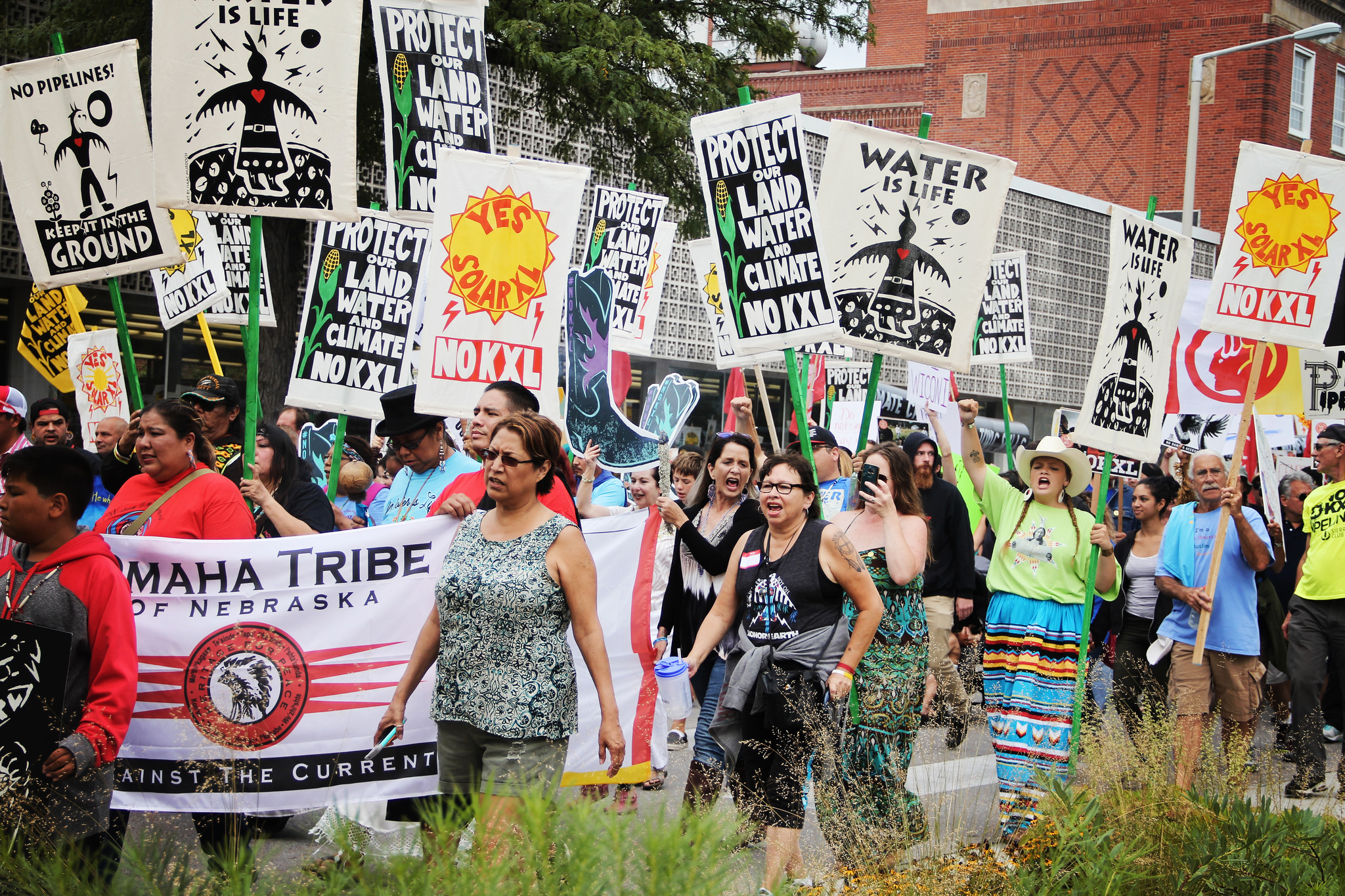
Photo: Juliana BrownEyes Clifford
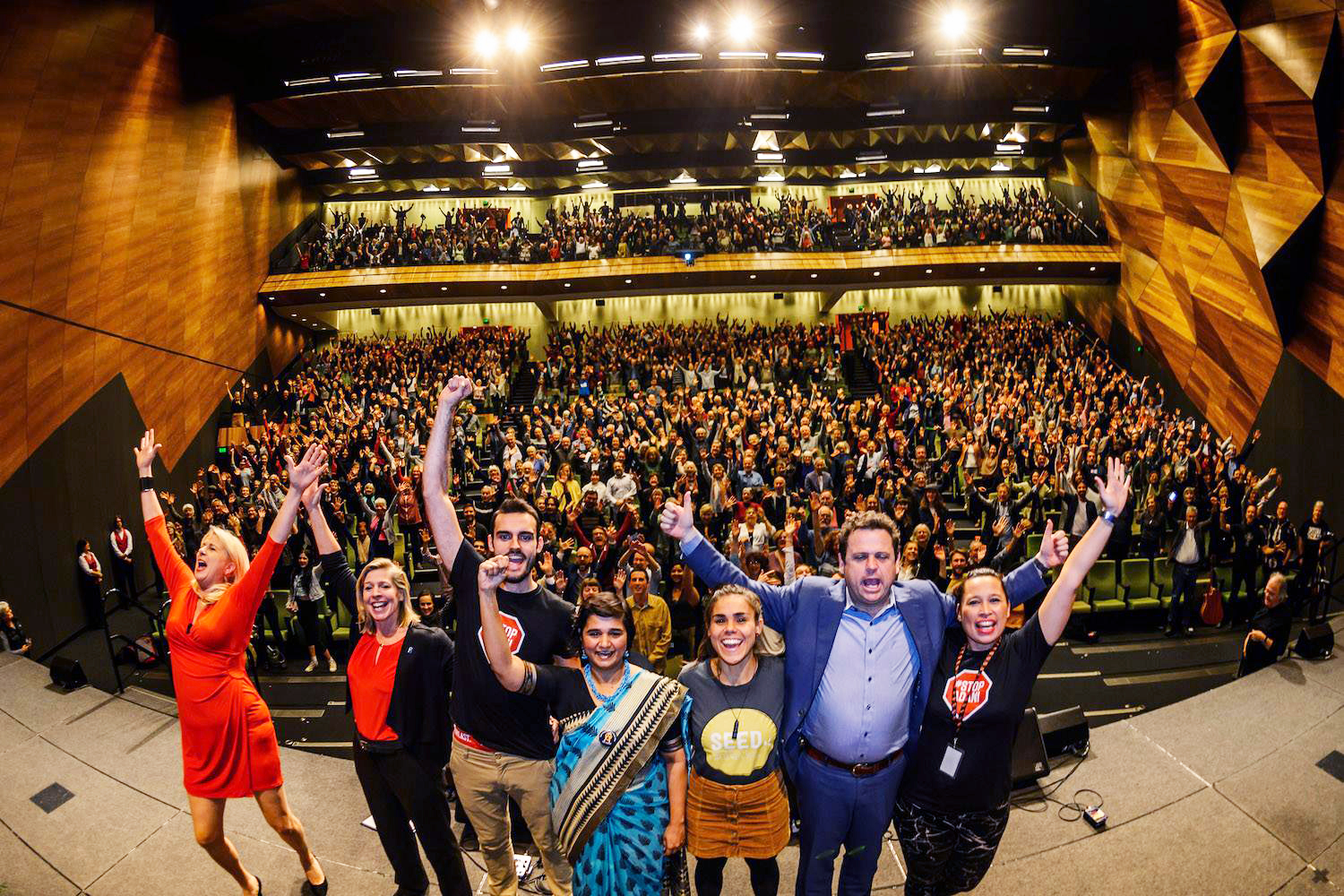
Photo: 350 Australia

Photo: Caroline Kwasnicki
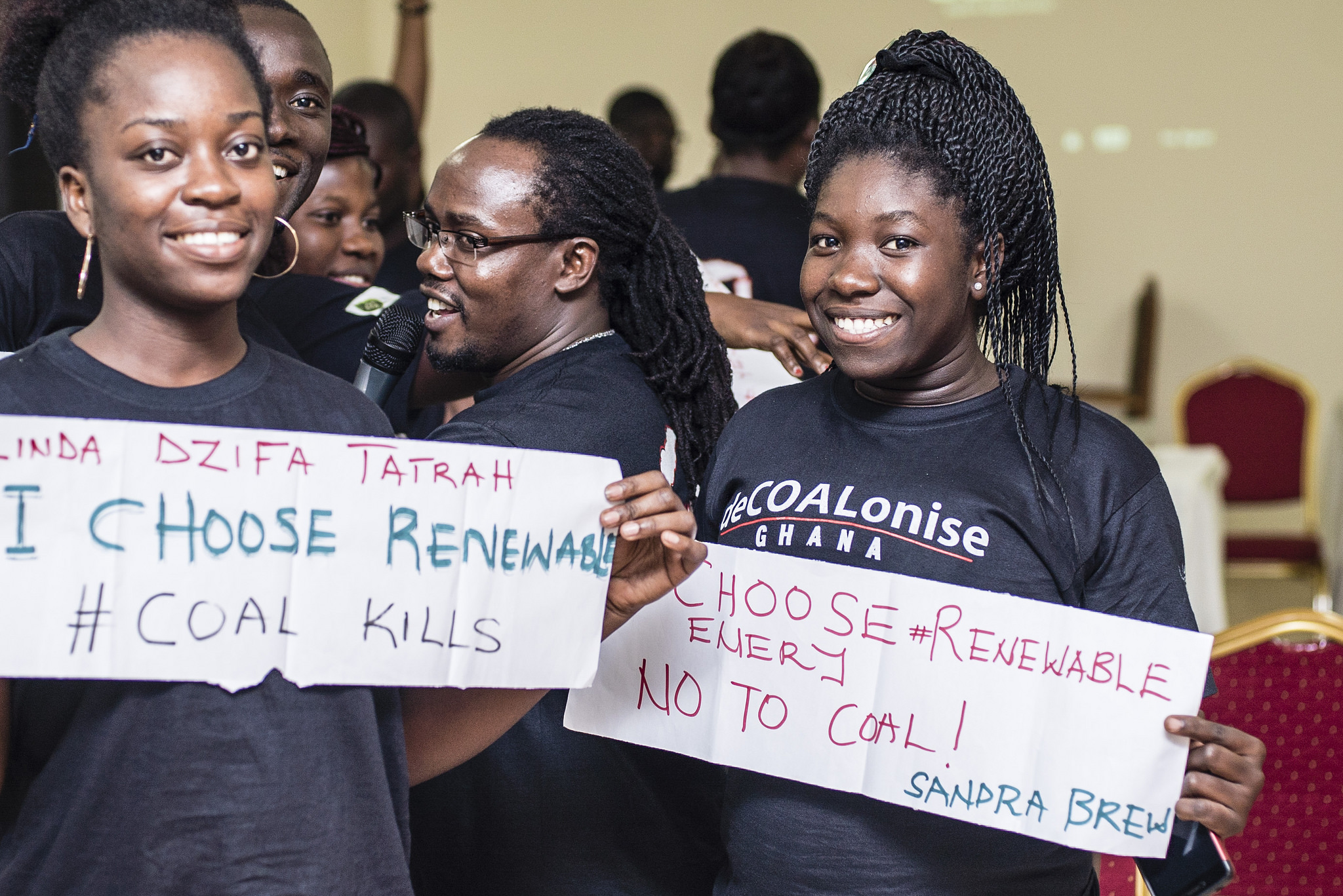
Photo: 350 Ghana
Tar Sands
Energy East & Kinder Morgan
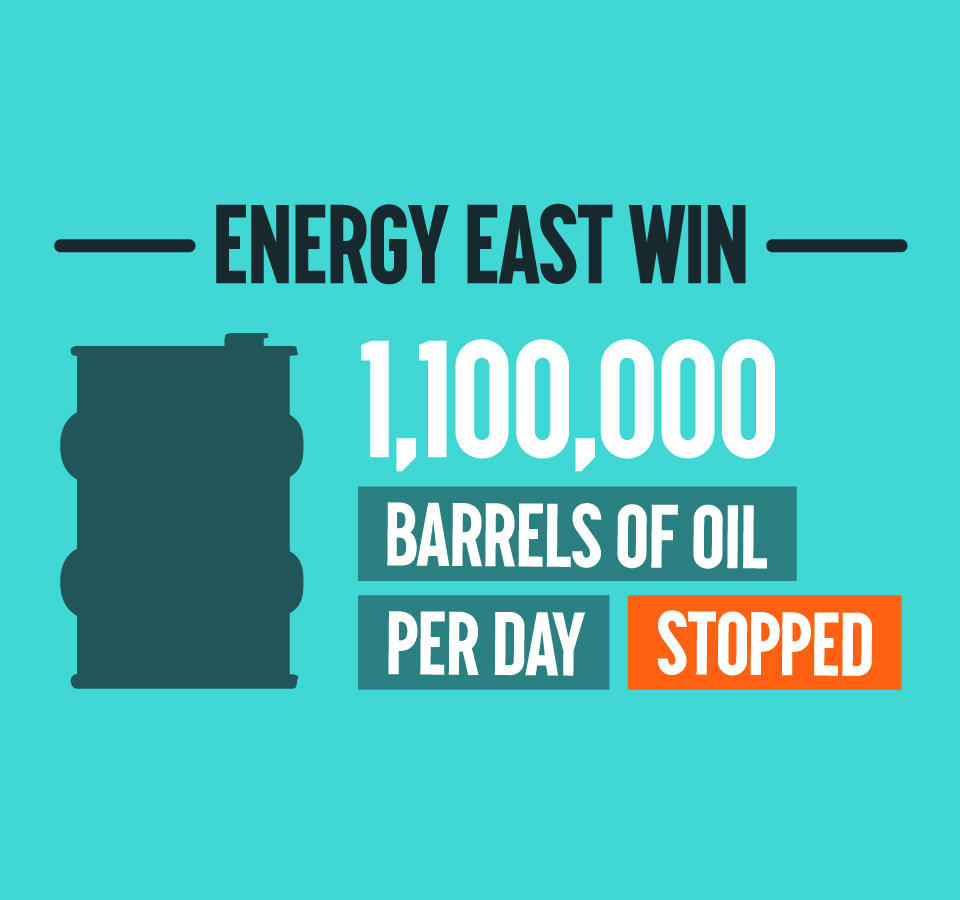
After years of fighting, Energy East pipeline — the largest proposed tar sands pipeline ever, which would have carried 1.1 million barrels of tar sands oil per day — is officially canceled.
Our team in Canada did important work with many Indigenous and frontline partners in this fight. Last May, we brought the Pacific Climate Warriors, Pacific Island activists organizing against fossil fuels, to the Canadian tar sands to build solidarity with Indigenous allies. The film we produced about this connection and the Pacific Climate Warrior’s experience garnered over 500,000 views on social media. While Energy East is defeated, we continue to fight against the Kinder Morgan pipeline in British Columbia. We organized thousands to submit comments against the project and last November, over 100 kayaktivists shut down the export terminal for the pipeline in Vancouver showing that Kinder Morgan will not be built without resistance.
Keystone XL
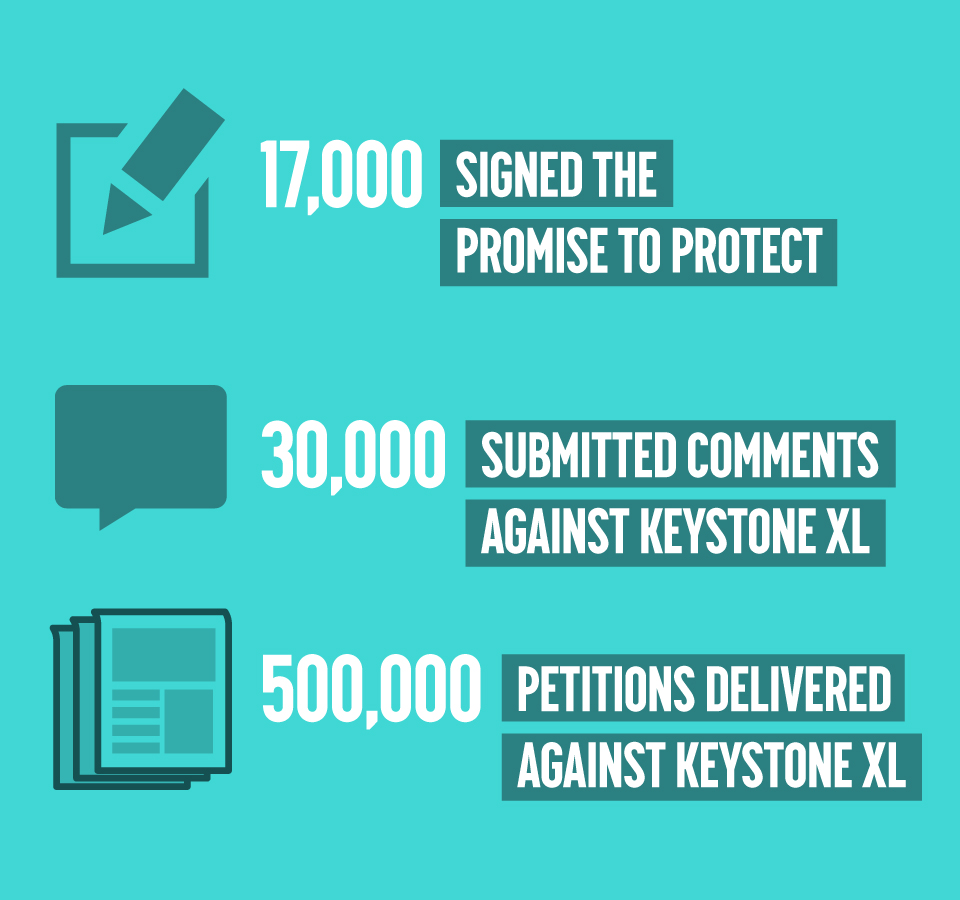
President Trump brought back the Keystone XL pipeline project and, once again, we’re fighting it each and every step of the way.
We put pressure on Nebraska’s Public Service Commission, which had the final say over whether the pipeline would be permitted to be built in Nebraska, in advance of their hearings in August. We helped organize a 200-person march in Lincoln, Nebraska and submitted over 500,000 comments with partners against the project. However, on November 20th, in a close 3-2 vote the Commission approved the permit but not the route that TransCanada requested. This gave us a strategic opportunity to continue blocking Keystone XL’s progress. Now through the Promise to Protect campaign, led by Indigenous allies, nearly 20,000 people have committed to join trainings and future mobilizations along the planned route, if and when it’s needed. We know that through frontline-led resistance, this pipeline will not be built.
Even in the face of what seems like impossible odds, ordinary people everywhere are standing up and fighting every major fossil fuel project in the U.S. This movement is growing, and we have mapped current fossil fuel fights across the country.
Fracking & Gas
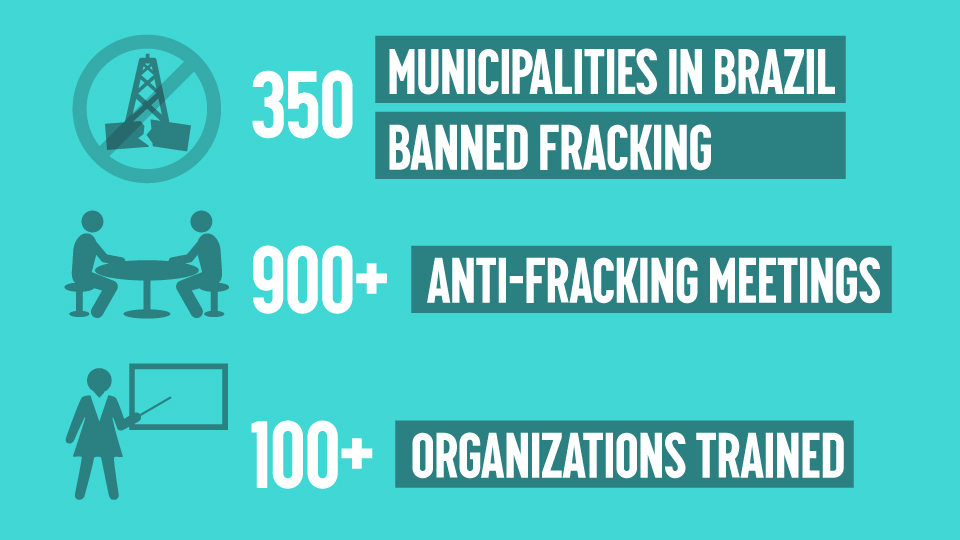 350 Brazil, along with the Latin American Coalition Against Fracking (COESUS), have achieved over 350 municipal fracking bans in Brazil with campaigns active in 75 cities. The number of municipalities banning fracking is up 50% from last year, and up from just 51 municipalities in 2015!
350 Brazil, along with the Latin American Coalition Against Fracking (COESUS), have achieved over 350 municipal fracking bans in Brazil with campaigns active in 75 cities. The number of municipalities banning fracking is up 50% from last year, and up from just 51 municipalities in 2015!
In 2017 alone, we’ve held over 900 local anti-fracking meetings and trained over 100 organizations in the country on how to fight fossil fuels. We’ve maintained momentum by pushing for an additional Brazilian state to ban fracking and hosting anti-fracking actions at land auctions. We are also using our trainers’ network to push for agricultural reform in Brazil, which has a significant impact on climate change and fossil fuel production.
The victories against fracking aren’t only in Brazil. In Uruguay, 350 Latin America and COESUS helped organize a march last December against fracking. Two days later, the Petrel Energy Company announced that it was suspending its fracking activities in the town of Palomas, Uruguay. Then just a week later, the Uruguayan Senate unanimously approved a four-year moratorium on fracking! This was an important step in the effort to keep fossil fuels in the ground in Latin America.
In Europe, the French government passed a law aimed at freezing fossil fuel exploration and gas extraction in France and French territories. While it sets a historic precedent, it also falls short on ambition; current oil and gas extraction permits could run for another 25 years. Our team is going to continue campaigning to make this law stronger and expand it to include more types of fossil fuels.
Coal
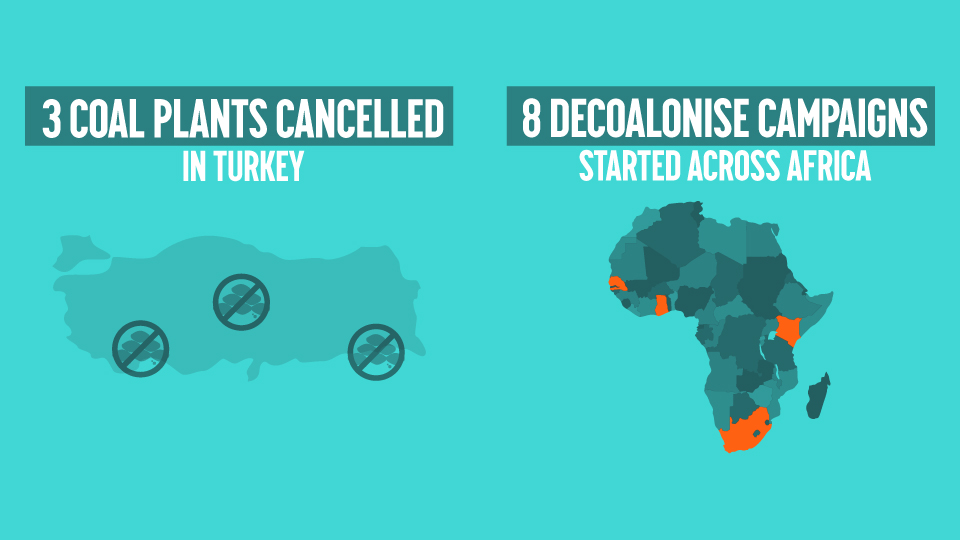 Coal remains a popular fossil fuel in many areas of the globe, and 350.org has been instrumental in keeping this dirty fossil fuel from being developed further. Our team in Africa launched an exciting new campaign called deCOALonise Africa.
Coal remains a popular fossil fuel in many areas of the globe, and 350.org has been instrumental in keeping this dirty fossil fuel from being developed further. Our team in Africa launched an exciting new campaign called deCOALonise Africa.
The legacy of colonization and the similarities of the fossil fuel industry’s extractive behavior on the continent inspired this campaign. We developed this campaign with partners to emphasize a clear African narrative to support existing fights and spur new organizing against coal. Since the initiative launched last November, there are eight campaigns active across four different countries.
We’ve also been able to celebrate some hard-fought victories against coal. In Turkey, we helped stop three planned coal plants. A Turkish court revoked the Izdemir coal station’s environmental permit; shutting down the 350-megawatt plant for an extended period of time. In addition, due to the intense local opposition we supported, two other coal projects in the Aliaga region have been shelved or canceled! While Turkey remains hooked on coal, these developments are important in building progress.
We’ve also been active against coal in Asia, where it’s crucial to keep it in the ground as countries look for more sources of energy. In Taiwan, nearly 5,000 people marched in the streets of Taichung to protest air pollution from coal and other fossil fuels. In Indonesia, we are helping to organize communities against numerous proposed coal power plants, especially the large Cirebon and Indramayu plants. May Boeve, 350.org’s Executive Director, visited the region and our team on the ground to see the impacts of coal pollution.
We also helped support and amplify established struggles against coal in Southeast Asia. In January 2017, we supported a global day of protest for the Sundarbans, the world’s largest single tract of mangrove forest, in Bangladesh. Organizers estimated that nearly 4,000 people showed their solidarity with the five-year-long resistance movement opposing the construction of the Rampal power plant. The plant would bring large shipping vessels in close proximity to the forests, which would threaten the fragile ecosystem and endangered species. We also created and circulated a video about the threats to this UNESCO world heritage site.
350.org Australia, an independent entity and close 350.org partner, has been leading the campaign against the proposed Adani coal mine, the largest proposed mine in Australian history. The team strategically garnered attention through a national roadshow about the mine, with 4,000 attendees and 4,000 more viewing the live streams from their homes. Through their efforts, the team caused major hurdles for the approval and funding for the project: 28 global banks abandoned their funding of Adani, the lead construction firm for the mine has quit, and the local government has denied a $1 billion loan for the mine. Stopping the Adani mine means that 60 megatons of coal per year over 60 years will stay in the ground.
Weakening the Power of the Fossil Fuel Industry
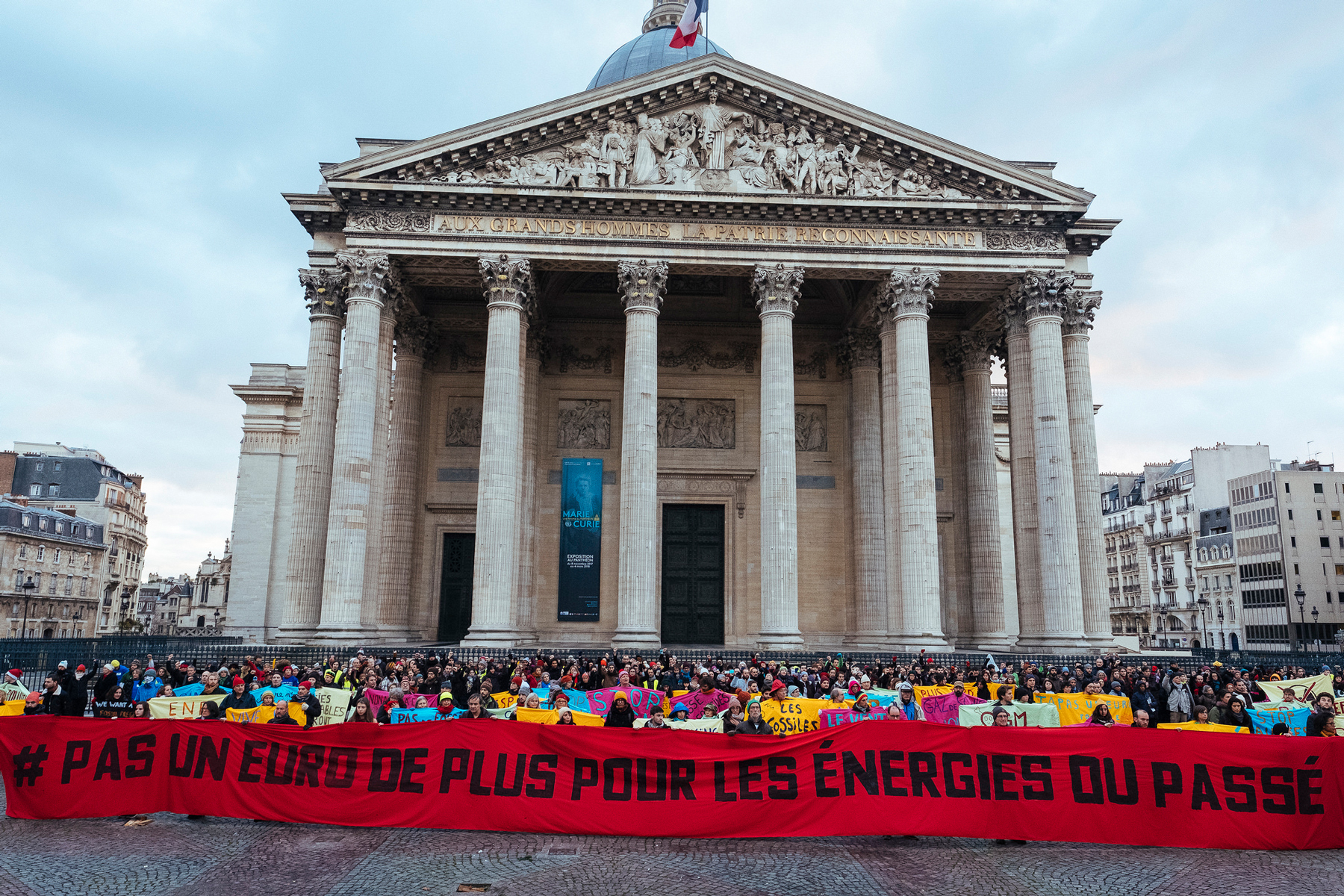
Photo: Denis Meyer
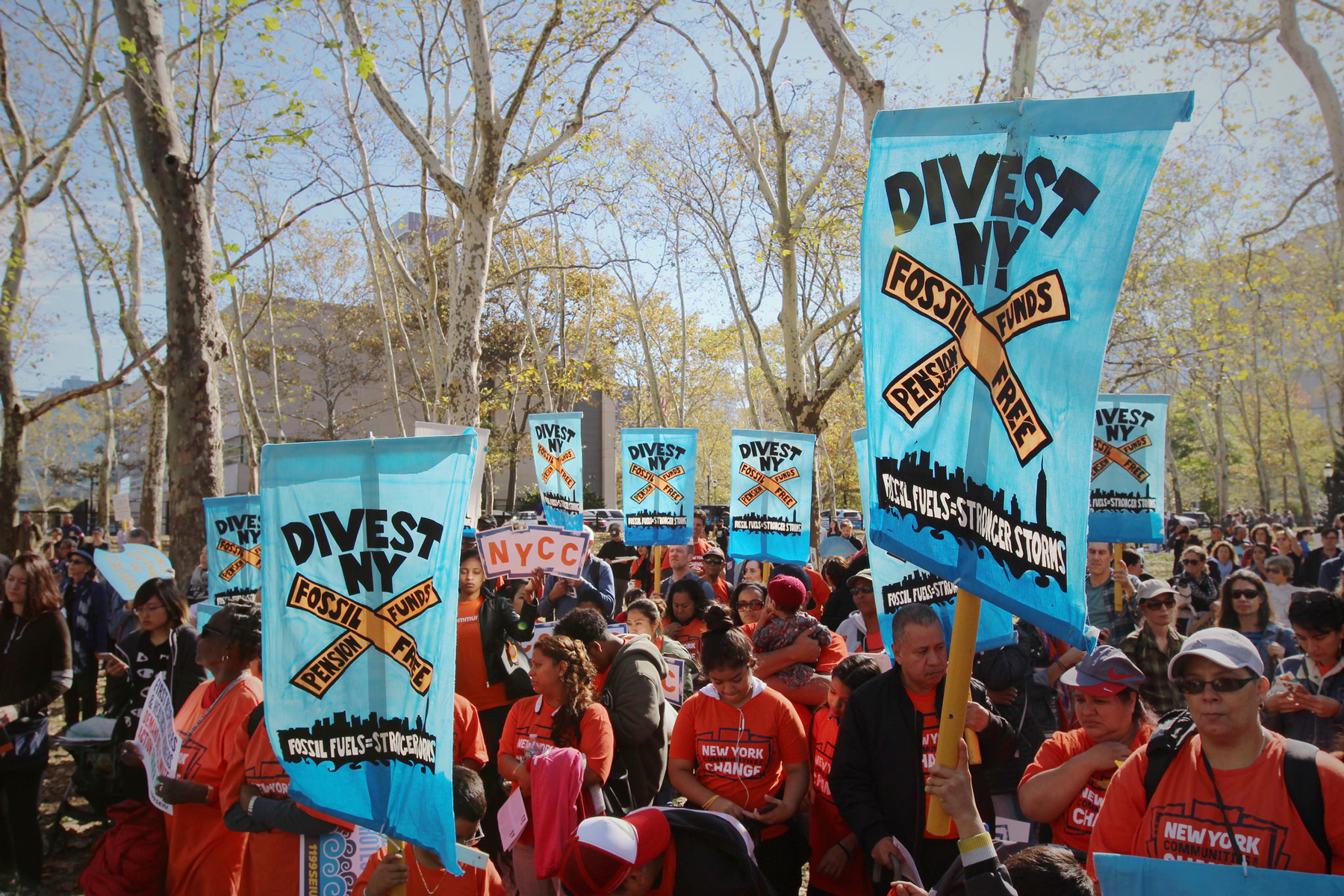
Photo: Rae Breaux
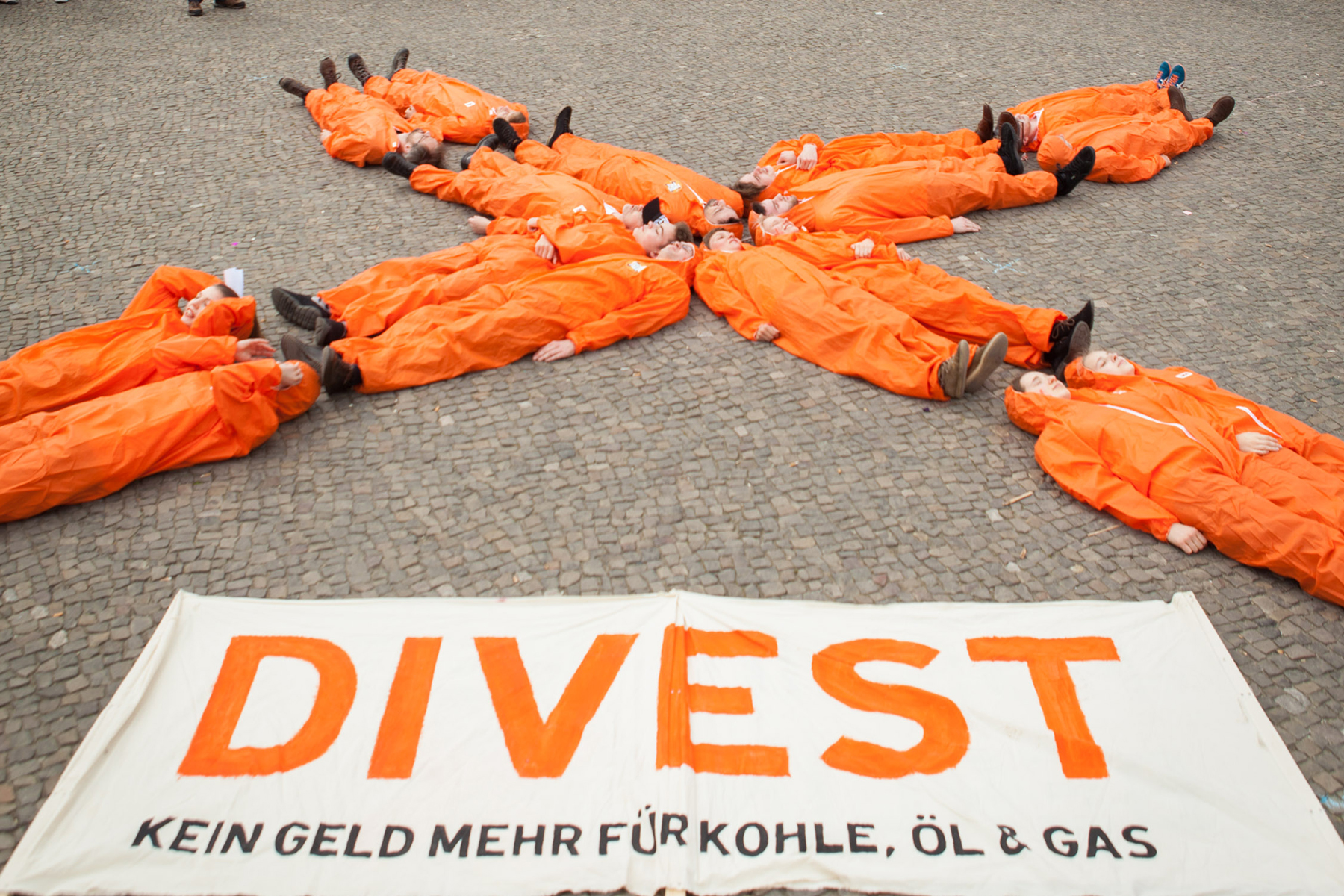
Photo: Fossil free Berlin
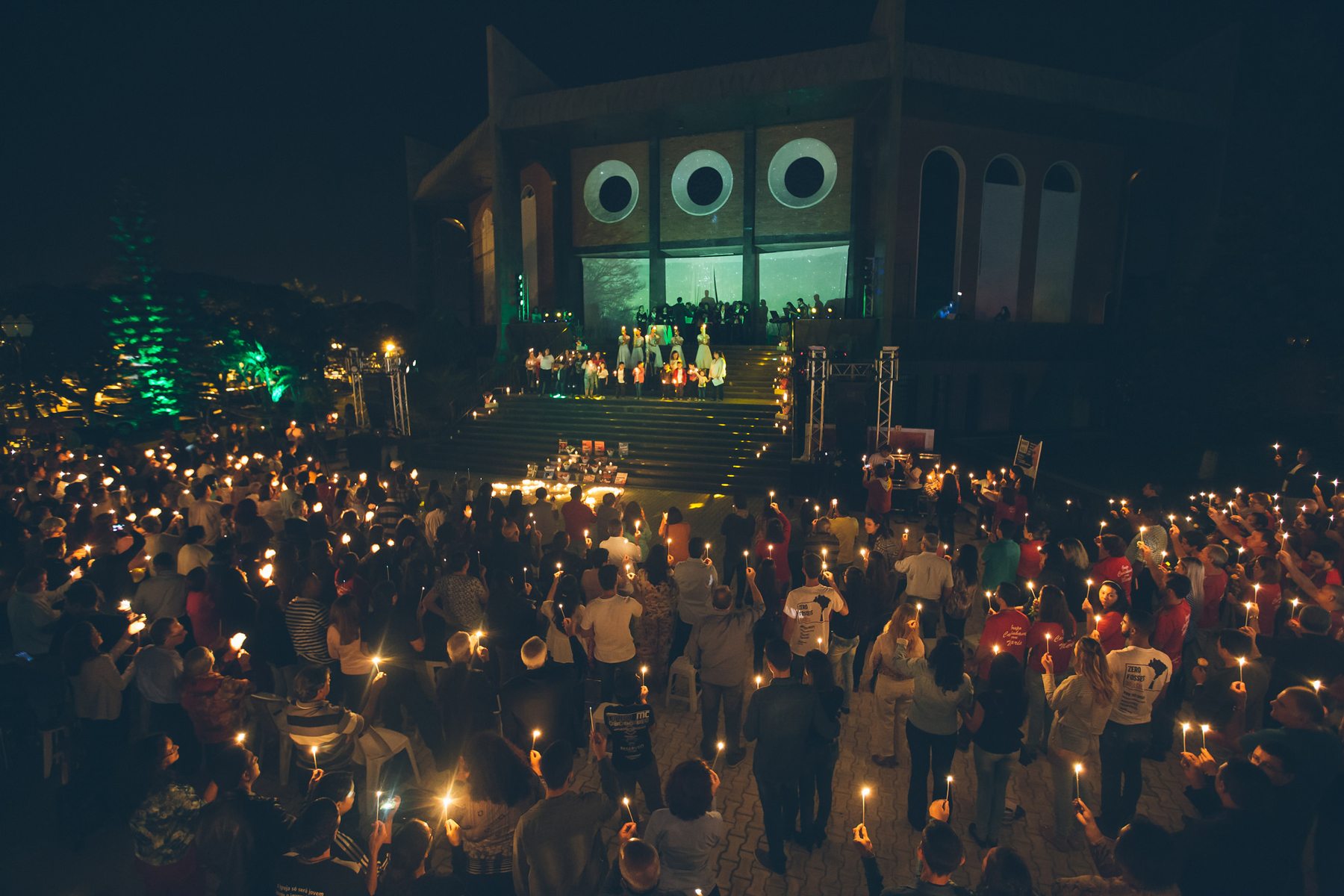
Photo: Claudinei Morando
Divestment
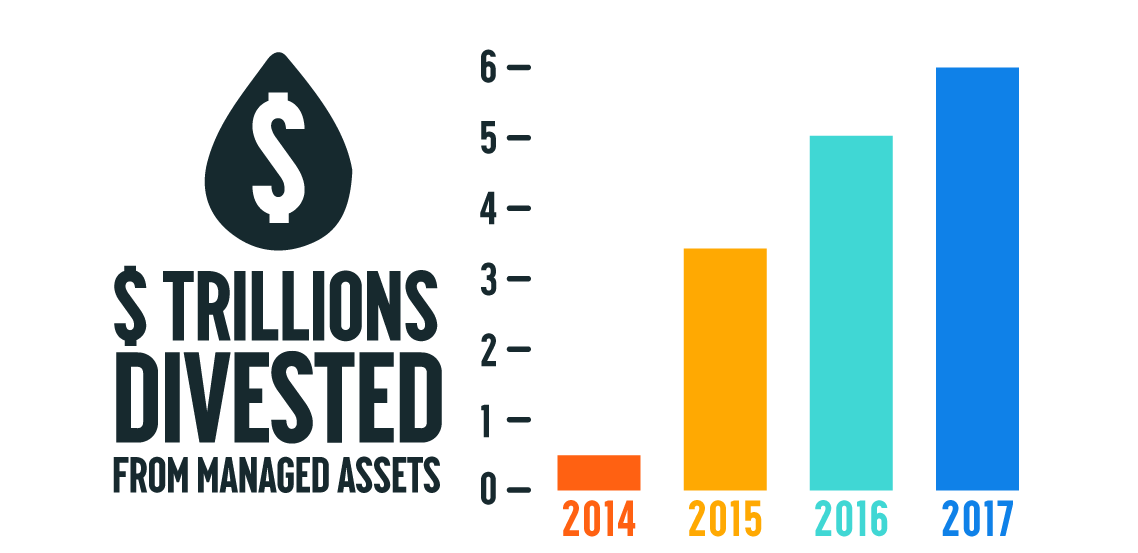
In 2017, fossil fuel divestment went fully mainstream. What started as a movement on a handful of college campuses has now transformed into a worldwide phenomenon.
Our Global Divestment Mobilization from May 5-13, 2017 mobilized people and encouraged more activists in over 270 communities in 45 countries to join the fight. These actions raised awareness for the divestment campaign and the fights on the ground, tying them together in a global narrative and expanding the movement. We’ve had 128 notable divestment commitments in 2017, including over 40 faith institutions, the city of Cape Town, South Africa, and the state of Ireland. This brings the amount committed to divestment to $6 trillion in managed assets!
After more than five years of inspiring and creative campaigning from the climate movement, the New York City and State pension funds have committed to divesting their fossil fuel holdings from coal, oil, and gas. Going a step further, New York City launched a lawsuit against the top fossil fuel companies. This victory is huge. Combined, the city and state pension funds are worth $390 billion, making this the largest divestment in the world. This was just months after the 5,000 person-strong #Sandy5 march in New York City, which called for the divestment of the city and state’s pension funds on the 5-year anniversary of the devastating Superstorm Sandy. This victory was a testament to the power of grassroots organizing and the long-term campaigning of partner organizations in New York.
We continued to use divestment creatively to suit different regional organizing. In Japan, the My Bank My Future campaign continues to pressure consumer banks and public financing institutions. In September, we showed that there is grassroots support for divestment by delivering over 1,000 petition signatures from account holders to Japan’s seven largest banks. The petition called on the banks to disclose their financial exposure to fossil fuels, nuclear power, declare support for the 1.5-2 degree goal set by the Paris agreement, and divest from fossil fuels and nuclear. The team has been producing creative videos to garner support for the campaign.
Fossil Free Finance
Over the last five years, the global divestment movement infused serious discourse about climate risk and fossil fuels into the community of institutional investors. Fossil fuel divestment is now on the radar of a significant portion of the world’s major institutions, and the climate movement is pushing for no new fossil fuel financing anywhere.
Whether it’s pushing banks to stop project-level loans to pipelines, demanding insurance companies to stop underwriting fossil fuel infrastructure, or pressuring cities to stop using fossil fuel funded banking, “no new fossil fuel finance” is a driving movement strategy. We are also campaigning to stop the financing of a few specific projects, like the Trans Adriatic Pipeline in Europe, the Thabametsi coal plant in South Africa, and the Rampal power plant in Bangladesh, while continuing work on shifting the larger narrative around fossil fuel financing within the investment sector.
We put this theory of change into action during a major European finance summit. On December 12th, 350.org helped organize a mobilization of hundreds of people at the Place du Pantheon in Paris to demand that “not a penny more” is invested in the fossil fuel industry. Over 500 people rallied as world leaders gathered in Paris at the ‘One Planet’ climate summit hosted by French President Macron to discuss investment in climate solutions. We called on them to not only step-up and make serious commitments to funding climate solutions but to stop supporting the fossil fuel industry. Later that day, the European Investment Bank announced it will again delay its decision on a massive 1.5 billion Euro loan for the Trans-Adriatic Pipeline. Our message is clear and we’ll continue to put pressure on the major funders of fossil fuel projects.
#ExxonKnew & #ShellKnew
We continue to challenge the power of the fossil fuel industry through our hard-hitting #ExxonKnew campaign. Despite ExxonMobil’s attempts to squash an investigation into their long, well-documented history of climate lies, the case is only gaining momentum.
A Massachusetts court ruled that Exxon must comply with the state attorney general’s investigation and hand over 40+ years of internal documents. Meanwhile, New York State’s Attorney General is keeping up the heat on Exxon and cities across the country are launching their own lawsuits against Big Oil.
We also strive to be creative in holding Exxon accountable for their lies. Due to rising temperatures, a Delaware-sized piece of the Antarctic ice shelf broke off into the sea in July. In response, we launched a petition calling on the Antarctic Place-Name Committee to name the iceberg “ExxonKnew 1” for their role in deceiving the public about the nature of climate change. 10,000 people joined us in calling for it to be named the “ExxonKnew Iceberg”, successfully highlighting the impact of Exxon’s decades of deception.
New reports have also made it clear that #Shellknew about climate change years ago and covered it up. In February 2017, 5,000 people came out for the largest protest against gas extraction in Dutch history in the northern city of Groningen in the Netherlands. Shale gas extraction in Groningen has been linked to gas-related earthquakes in a city not usually prone to seismic activity. Youth and adults marched through the city center demanding an end to gas extraction in the region, called on Shell and Exxon to pay for the damages to their homes from earthquakes induced by extraction, for the Dutch government to break its ties with the gas industry, and for leaders to speed up the 100% renewable energy transition away from fossil fuels. Our efforts to expose the deception of the fossil fuel industry and revoke its social license with the public are working, making the move to a 100% renewable energy future for all possible.
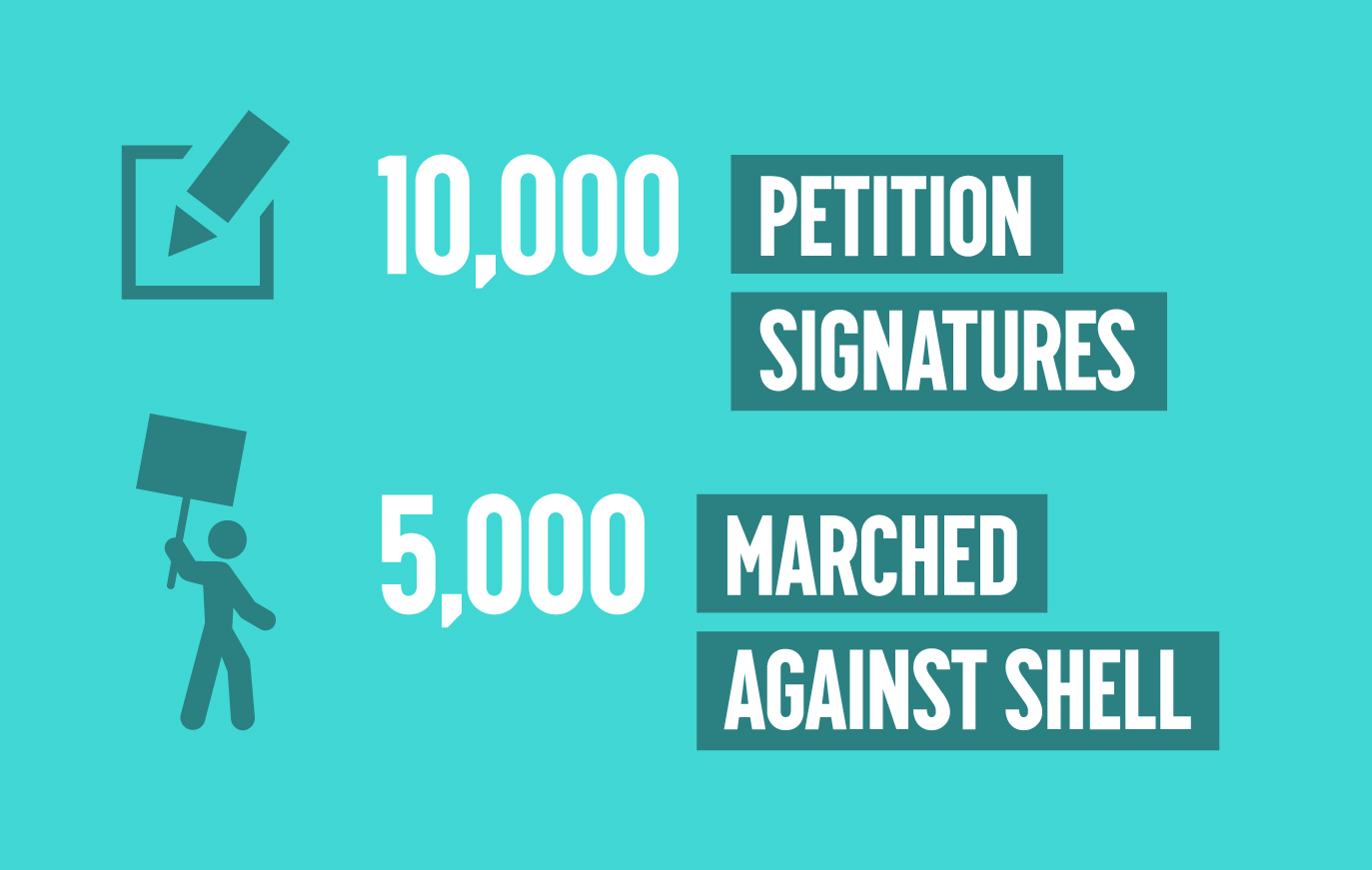
Calling for Climate Action at COP23
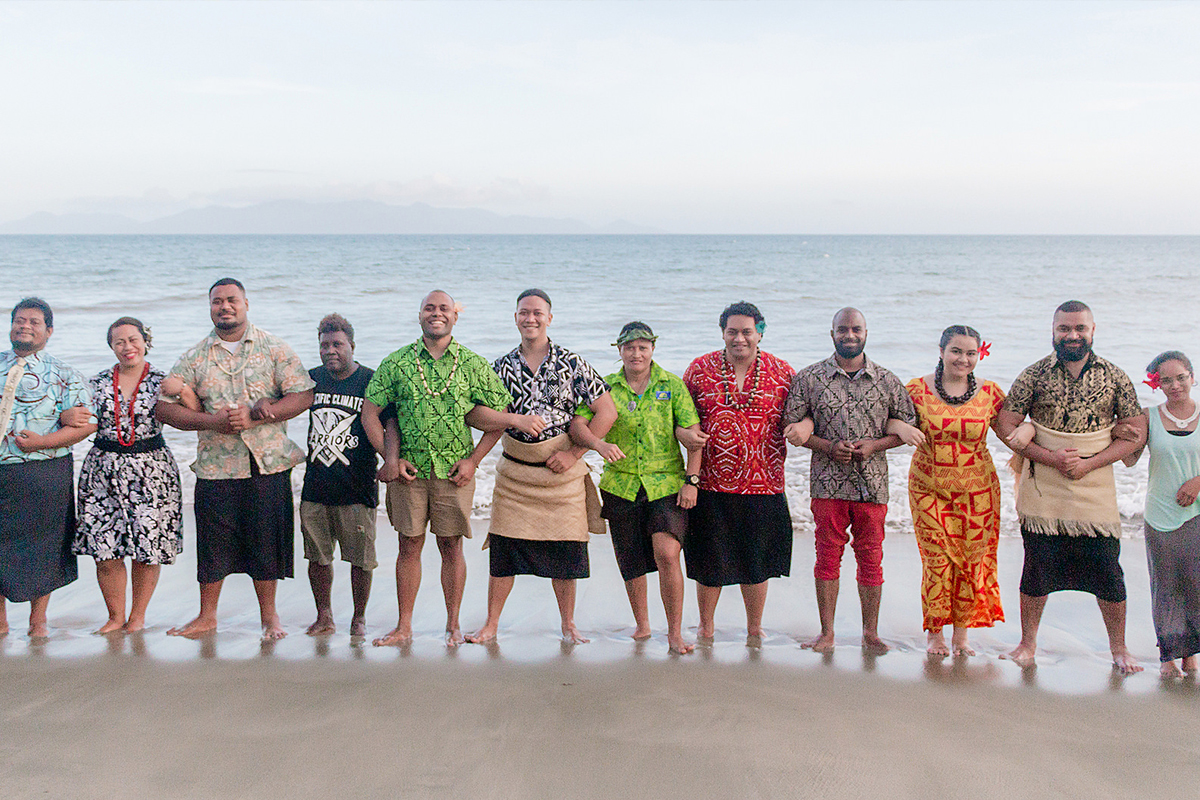
Photo: Fenton Lutunatabua
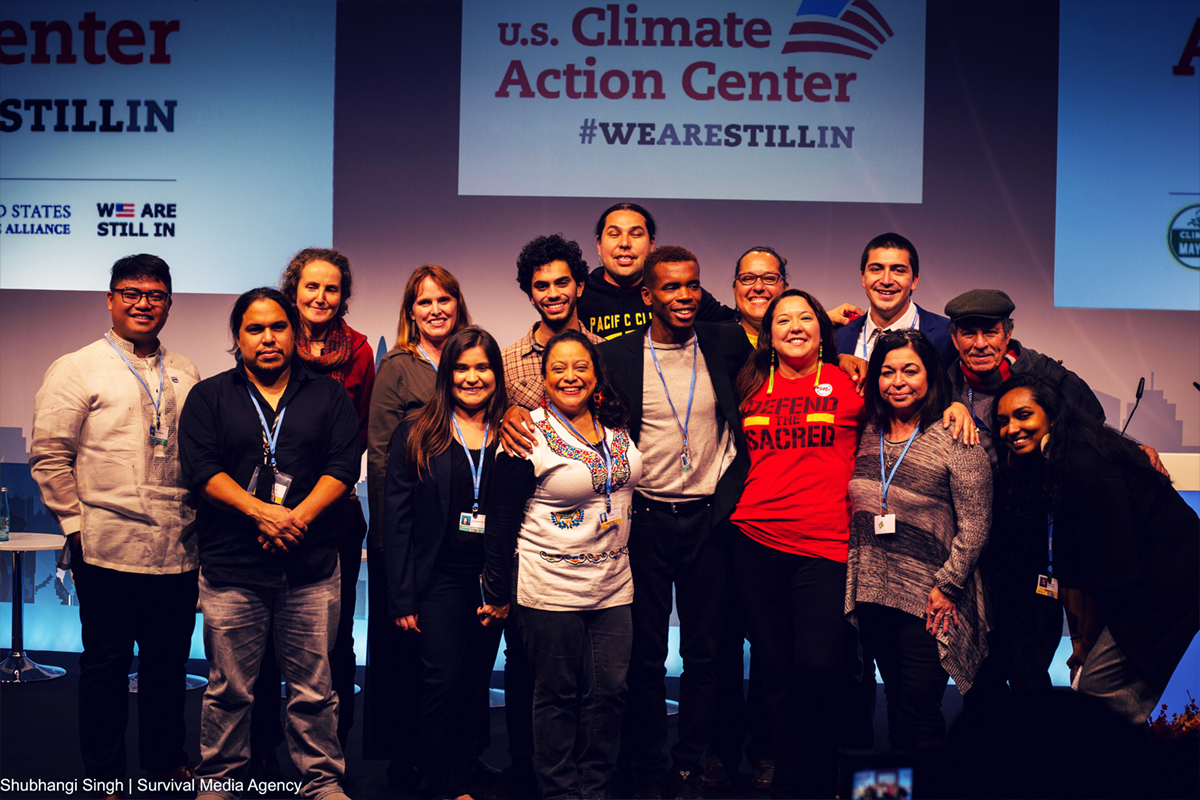
Photo: Shubhangi Singh
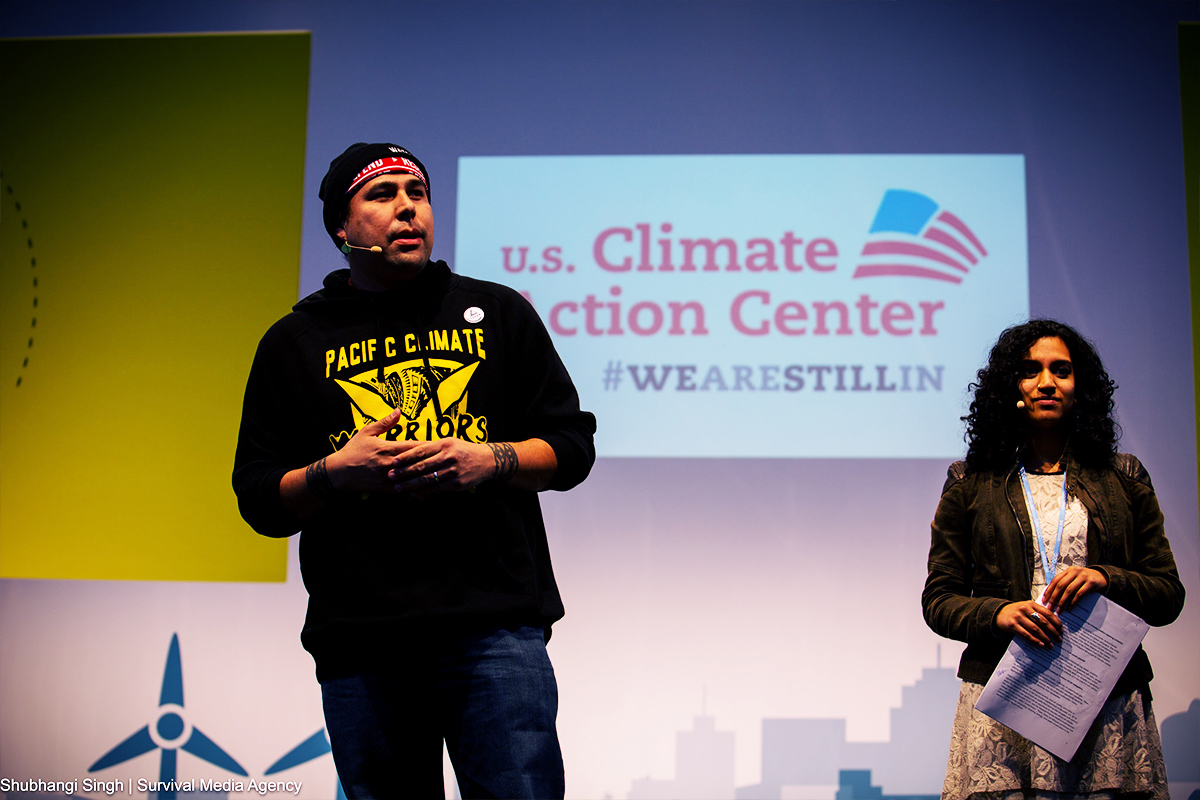
Photo: Shubhangi Singh
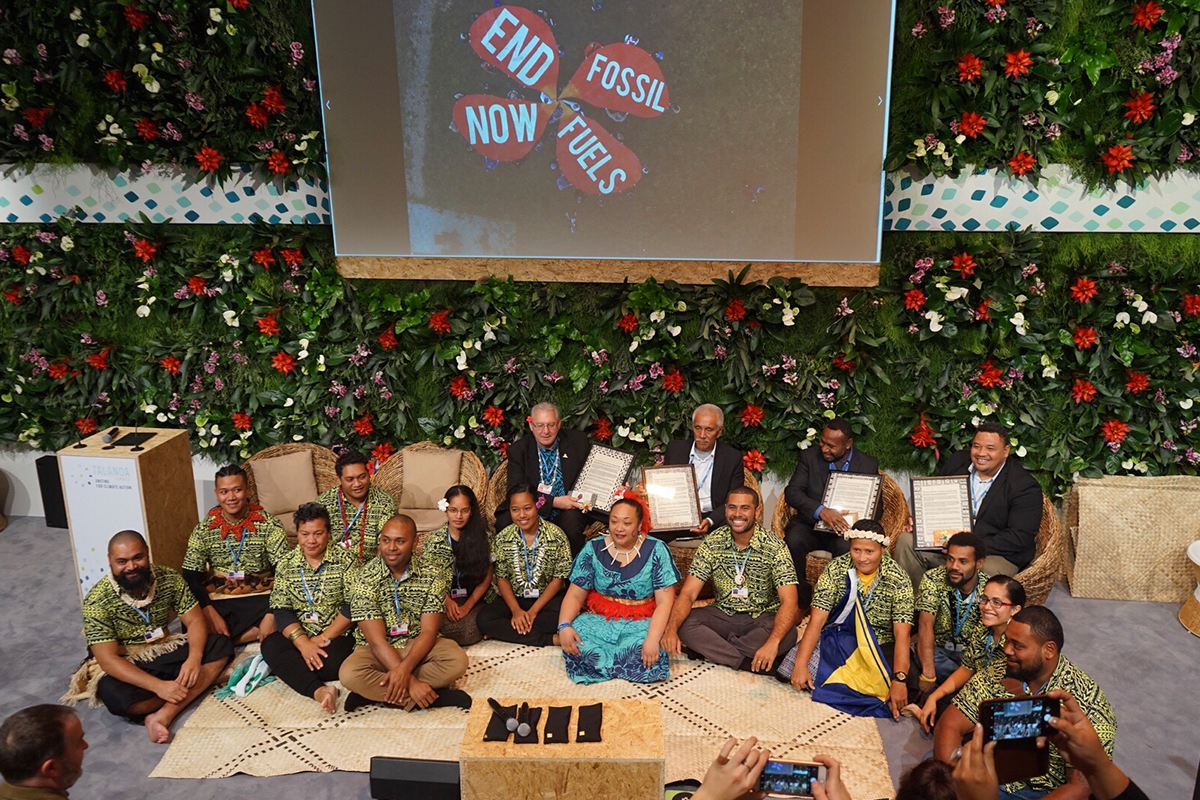
Photo: 350 Pacific
Have Your Sei: A Call to Action from the Pacific Climate Warriors
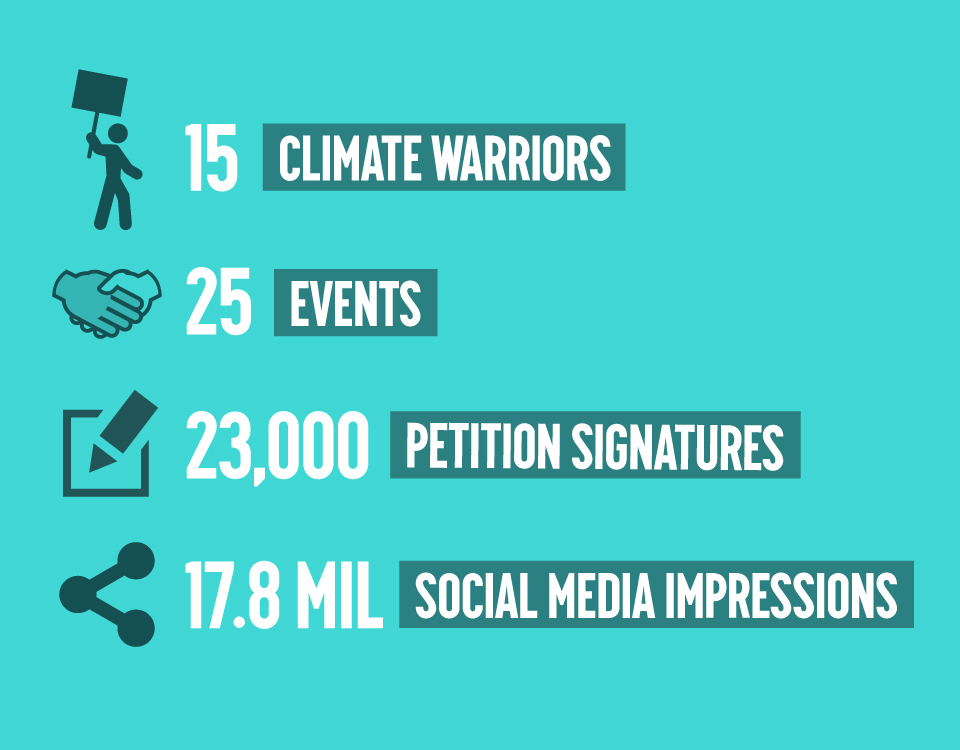 The annual climate negotiations are crucial moments for 350.org to push world leaders to take bold climate action, collaborate with civil society, and amplify the calls from frontline communities. COP23, while chaired by Fiji, was held in Bonn, Germany last November.
The annual climate negotiations are crucial moments for 350.org to push world leaders to take bold climate action, collaborate with civil society, and amplify the calls from frontline communities. COP23, while chaired by Fiji, was held in Bonn, Germany last November.
We worked closely with our staff in the Pacific islands and the Pacific Climate Warriors to create a powerful narrative and groundswell for climate action. We organized the Have Your Sei campaign, which asked people to sign The Pacific Climate Warrior Declaration on Climate Change. The Declaration highlighted how climate change is impacting the Pacific and how climate inaction exacerbates that threat. We called on world leaders to commit to building a better, more just world for ourselves and for generations to come. We received support from major rugby players, key voices in the Pacific, and Tonga’s royal family.
We brought 15 climate warriors to COP23, held 25 events during the talks, and delivered 23,000 signatures to the delegates calling for ambitious climate action. Our message was heard far and wide: the campaign received 17.8 million social media impressions and appeared on the evening news in Germany.
U.S. People’s Delegation: Grassroots Activism at COP23
 In response to the complete lack of U.S. climate leadership from the Trump administration, we organized the U.S. People’s Delegation to show the force of U.S-based communities and everyday Americans at the COP. The delegation included members from frontline communities, Indigenous communities, communities of color, youth, advocates, and policymakers who are pushing for climate action on the city and state level despite the U.S withdrawal from the Paris Climate Agreement and recent rollbacks on climate protections.
In response to the complete lack of U.S. climate leadership from the Trump administration, we organized the U.S. People’s Delegation to show the force of U.S-based communities and everyday Americans at the COP. The delegation included members from frontline communities, Indigenous communities, communities of color, youth, advocates, and policymakers who are pushing for climate action on the city and state level despite the U.S withdrawal from the Paris Climate Agreement and recent rollbacks on climate protections.
Among the demands of the delegation were a just and equitable transition to 100% renewable energy in all cities and states and a call to action for politicians to take ambitious climate action. The delegation was made up of 40 grassroots activists, representing 11 grassroots organization. Together the delegation portrayed the true needs of U.S.-based communities, successfully pushed back on the Trump delegation to COP23 by revealing their close ties to the fossil fuel industry, and built momentum for climate action throughout the conference. We organized two major events that highlighted stories from communities across the U.S. and illuminated why we need urgent climate solution-focused policy from our leaders:
- We held an in-depth town hall with 10 elected officials and city representatives from the U.S. on climate accountability and helped deliver 1 million “We Are Still In” petition signatures to the UNFCCC Secretariat: a powerful display of commitment from communities around the U.S.
- Members of the U.S. People’s Delegation organized hundreds to walk out of the only event the Trump administration held, singing “We The People” in protest of their fossil-fueled policies. The delegation called on the administration to keep fossil fuels in the ground in front of hundreds of delegates and the media. The video of the walk-out went viral on social media, amplifying our message to audiences globally.
The delegation garnered 114 major press hits, including in top publications like the New York Times. In addition, our social media received 46 million impressions across all platforms: ensuring our demands for climate action were heard around the world. The organizations represented in the People’s Delegation included: SustainUS, Sunrise Movement, Indigenous Environmental Network, Global Grassroots Justice Alliance, and the Climate Justice Alliance as part of It Takes Roots, U.S Human Rights Network, Climate Generation, Our Children’s Trust, NextGen America, and 350.org.
Organizing + Leadership Development
Empowering the Climate Movement

Photo: 350 East Asia
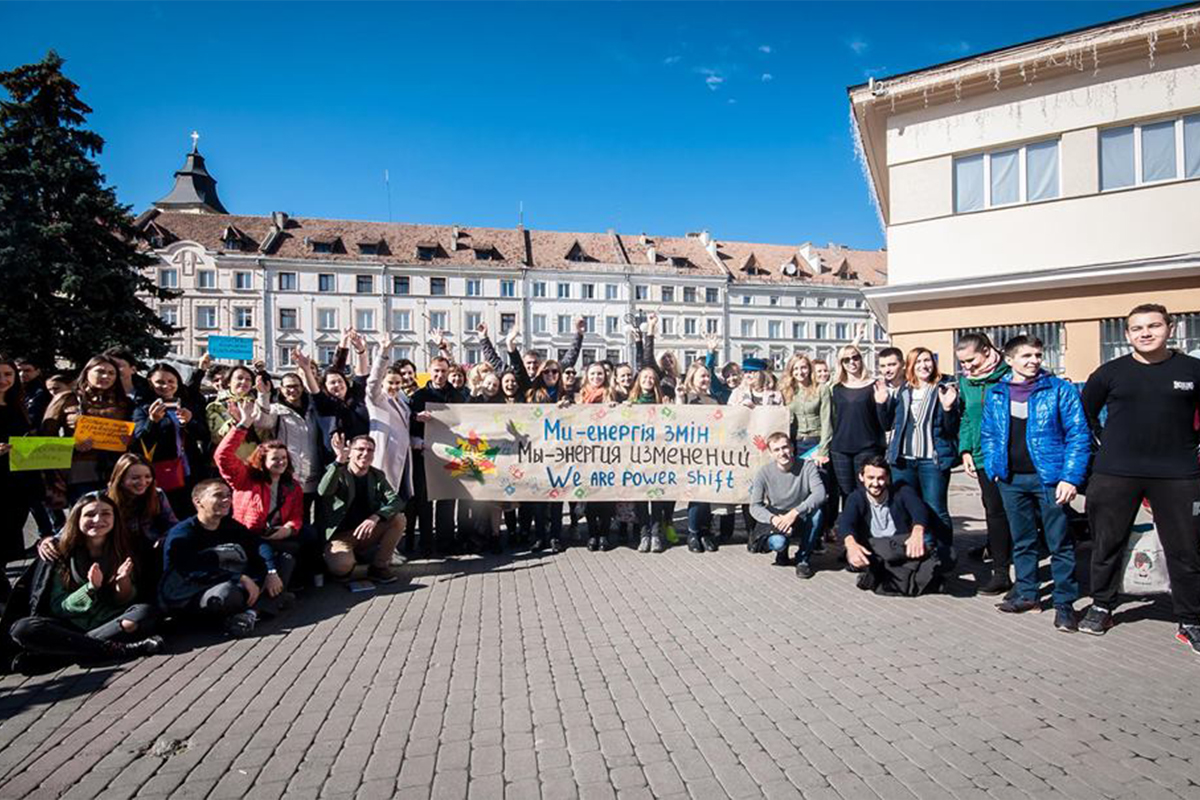
Photo: 350 Ukraine
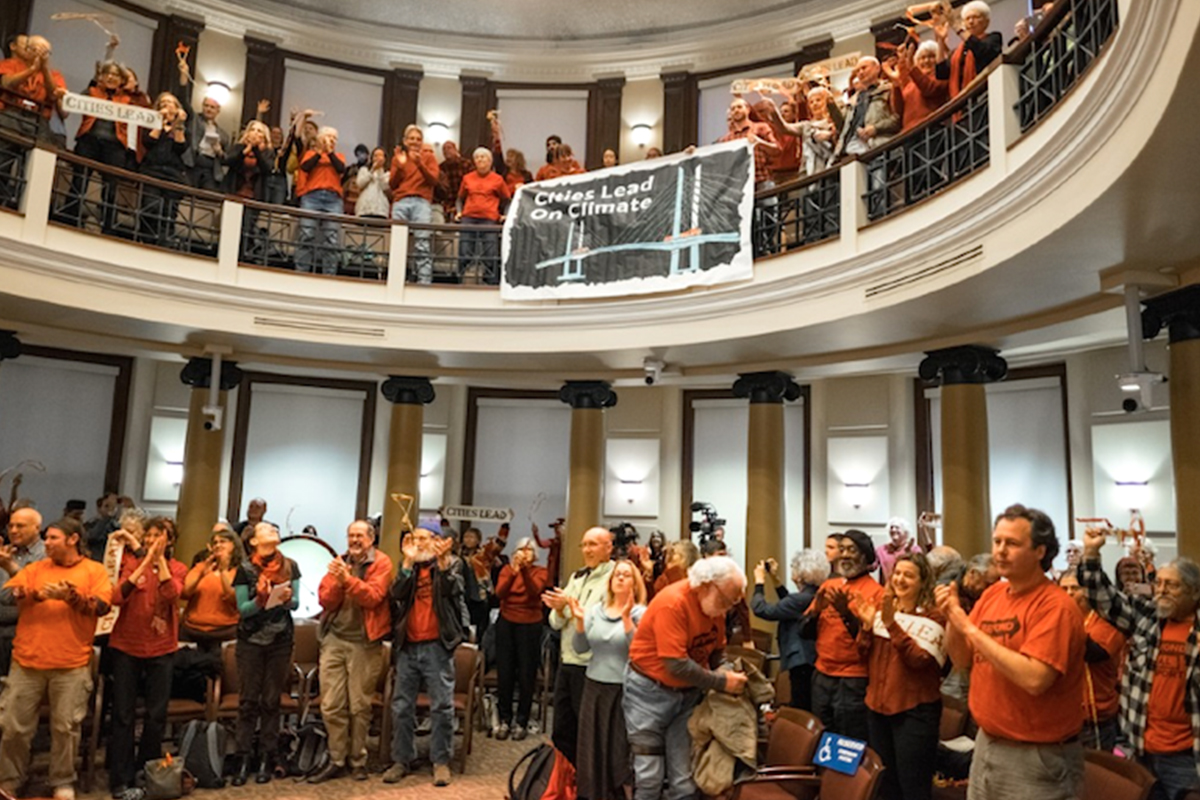
Photo: 350 PDX
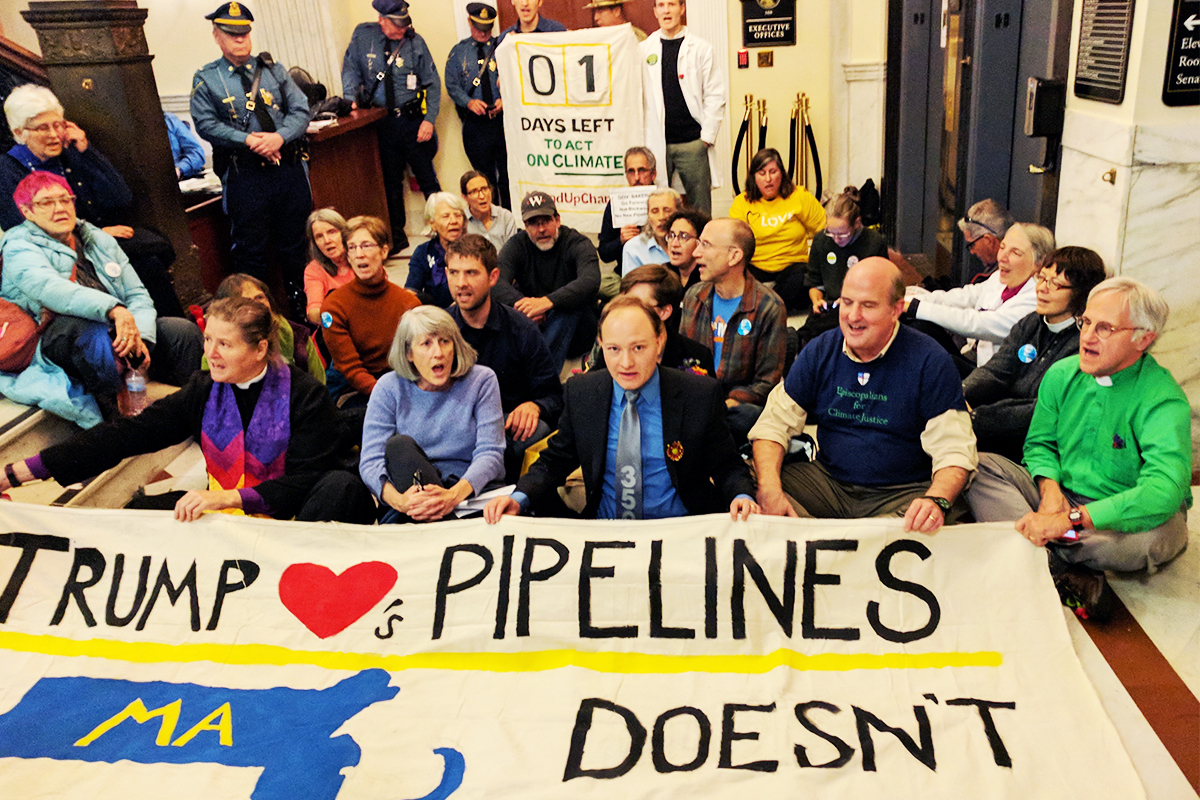
Photo: 350 Mass/ Better Futures Project
350 Local Groups and Progressive Partnerships
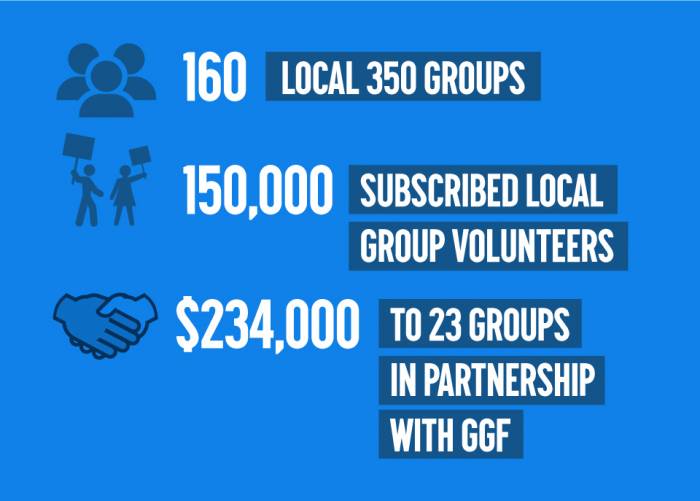
We know that to change everything, we need everyone. We rely on 350 local groups to fight for climate action in their communities from city councils to state legislatures. In the U.S., 350.org has recruited over 160 affiliate local groups across 38 states with over 150,000 subscribed volunteers.
All of the local groups achieve impactful results and learn from each other’s campaigns through newsletters, monthly conference calls, and trainings. We provide skill trainings, coaching support, tools, and campaign information to work in concert with their efforts. For example, our partner groups 350NYC and 350 Brooklyn were important allies in the DivestNY victory.
In addition, a number of new collaborations have been formed in the past year in response to the Trump administration’s disastrous policies. We’ve continued working with many peer and progressive organizations, like Color of Change, Sierra Club, Moveon, NAACP, NARAL, and others in cross-movement working groups. These groups are critical to staying aligned with partners on long-term strategy for the progressive movement so we can achieve our shared goals.
We believe it’s crucial to empower the climate movement worldwide so we developed a program to support frontline fossil fuels fights, climate-impacted communities, campaigns promoting solutions initiatives, and under-resourced climate activist groups. In 2017, in collaboration with Global Greengrants Fund, we provided $234,000 to 23 grassroots groups fighting climate change around the world. These groups, across six continents, are doing critical grassroots organizing against fossil fuel projects and empowering their communities to fight for 100% renewable energy for all.
Trainings
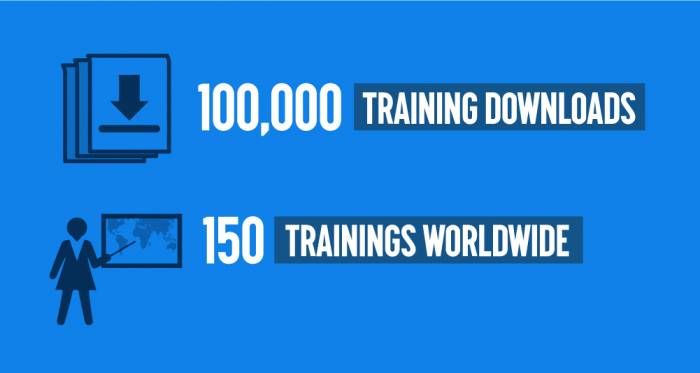
Our Global Training Program increases the capacity of the climate movement by enhancing the abilities of our regional organizers to support more activists engaging in bigger and bolder campaigns. Our training website also serves as a learning lab for campaign teams to share successes, shortfalls, and learnings of their work.
In 2017, the website received over 100,000 downloads and we held over 150 trainings worldwide. Our trainings foster local leadership and steep learning in local traditions to yield powerful activism, such as the Pacific Warrior Training Program, which has mobilized hundreds of Indigenous activists across many Pacific islands to engage their communities on the impacts of climate change and participate in mass actions confronting the coal industry in Australia.
We continue to organize in-person trainings in specific regions. Through our Divestment East Asia Network (DEAN), we organized a gathering of anti-coal grassroots groups for capacity building and training in areas like digital campaigning and storytelling for stronger and more effective campaigns. In South Asia, we are building a network of trainers to support the launch of “solidarity groups” – volunteer run 350 organizations that foster relationships between rural and urban people confronting coal. In Europe, we have an expanded training program to support divestment and Fossil Free campaigns to help hone strategy and organizing skills.
We also innovated and are testing new online interactive trainings and evaluating their impact. In Latin America, we recognized the need for additional resources for our network in Argentina and Brazil. We released 11 interactive online training courses in Portuguese and English to help build capacity for our partners and volunteers in Brazil on different aspects of the climate change fight. These trainings have been wildly successful and have been used over 2,700 times in less than a year. We’re going to continue creating free interactive trainings that will further empower the climate movement to push for climate action.
Cities for Life
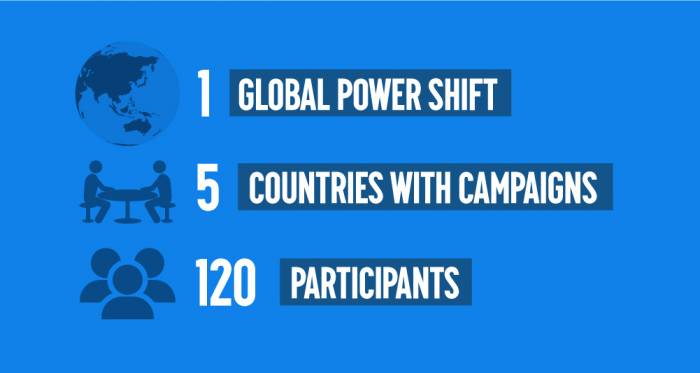
In many parts of Eastern Europe and the Caucasus, our team determined that climate literacy is low and the political power of the oil company Gazprom is significant enough that we needed to adapt our campaigning and experiment with new strategies. We launched the Cities for Life campaign to fit the organizing context in Eastern Europe, improve climate awareness, and help activists push for climate-friendly solutions in major regional cities.
Our team supported the creation of local working groups of activists together with local governments to develop written climate strategies. We helped plan days of action in 15 cities in five countries where people mobilized to improve their cities by renovating public spaces with climate solutions such as sorting waste, solar panel installation, city gardens, and planting trees. We also planned a youth-centered Powershift event in October where 120 participants from eight countries attended a campaigning training in Ukraine. The team is now launching a climate leadership program to further develop the skills of these leaders to push for climate-friendly solutions. In regions where freedom of expression is often repressed and regulated, we’ve found ways to build the movement and the skills of activists for future change.
Activist Profile
Walid Ahmed Ali
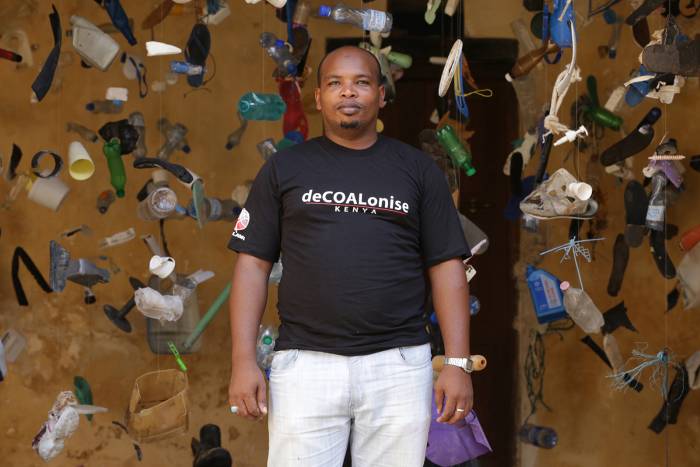
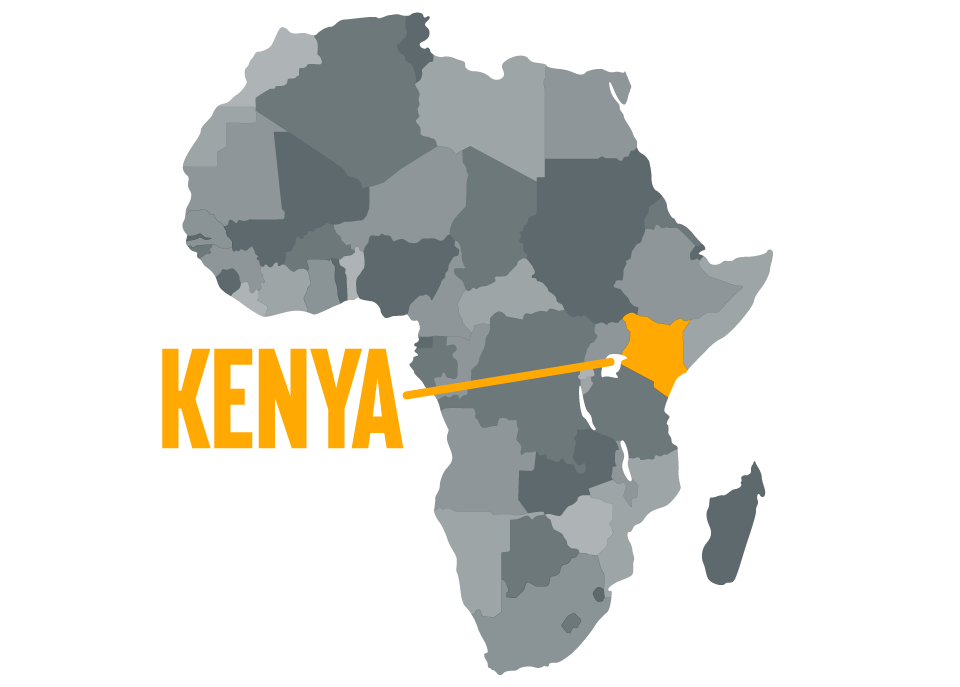
In Kenya and across the African continent, as in many places, 350.org cannot do its crucial work to fight climate change without partners and volunteers. We work closely with our partners on the ground, and support their work to maximize their impact for progress. Here is just one example:
Walid Ahmed Ali, an activist from Lamu, Kenya has been one of our strongest supporters in the deCOALonise.africa campaign. Walid is involved with Save Lamu, a grassroots organization that advocates for the inclusion of the community in decisions impacting the environmental, social, and cultural integrity in Lamu. Walid is also the founder of the Lamu Youth Alliance, a group working for youth empowerment, social justice, and gender equity that teaches leadership in the community. Save Lamu and Walid have been crucial allies pushing back against the proposed Lamu coal plant, which would increase emissions in the region.
Walid, born and raised in Lamu, is passionate about and invested in the fight to save Lamu Island. When asked why, it’s because he’s “directly affected by the reality of climate change and, most importantly, to prevent thousands of future deaths and destruction of the rich biodiversity of the island due to coal pollution.”
Walid is an important grassroots partner in our work. He’s featured in our deCOAlonise.africa video where he speaks to the opposition of his community against the Lamu coal plant. He helped us reach out to the Lamu community, pointing us to various local leaders for media interviews to help us amplify resistance to the project. Walid also is a 350 Africa spokesperson and community leader in the deCOALonise movement. He was one of the activists featured in the deCOALonise photo exhibition in Nairobi, Kenya last October. The event that attracted crowds, high-level political figures, and artists to build opposition to coal. His rich advocacy skills and grassroots organizing experience are highly regarded in the environmental and social justice circles.
Prince Papa, 350.org Sub Saharan field organizer, knows that he “can always count on Walid whenever there is an urgent request regarding the anti-coal campaign. He is selfless and extremely dedicated to empowering his community. I wonder if there’s anything he loves more than his community in Lamu.”
In January 2018, Walid joined the 350 Kenya team in a three-day planning retreat aimed at aligning and refining our mobilization efforts against coal development in Kenya. He is a key actor in the implementation phase of our deCOALanise plans in Africa.
Walid is an impactful climate-organizer. 350.org depends on the leadership of Walid and countless individuals and grassroots organizations to point the way. We’re grateful to help organize, train and mobilize beside these local leaders. Our heartfelt thanks go out to Walid Ahmed Ali and all our volunteer activists, partners, and supporters all around the world!
Financial Information
2017 Financials
2017 Revenue
| 2017 | 2016 | ||
|---|---|---|---|
| 45% | Grants & Foundations | $7,528,814 | $7,314,102 |
| 55% | Individual Donations | $9,234,143 | $6,383,426 |
| 0% | Other Income | $78,294 | $111,825 |
| Total | $16,841,251 | $13,809,353 |
2017 Expenses
| 2017 | 2016 | ||
|---|---|---|---|
| 81% | Program Services | $10,462,347 | $9,129,553 |
| 15% | Management & General | $1,955,557 | $1,180,945 |
| 4% | Fundraising | $490,882 | $345,315 |
| Total | $12,908,786 | $10,655,813 |
Assets, Liabilities and Net Assets
| 2017 | 2016 | |
|---|---|---|
| Assets | $12,387,561 | $8,034,303 |
| Liabilities | $1,137,924 | $717,131 |
| Net Assets | $11,249,637 | $7,317,172 |
Net Asset Breakdown
| 2017 | 2016 | |
|---|---|---|
| Unrestricted | $10,240,799 | $5,944,370 |
| Temporarily Restricted | $1,008,838 | $1,372,802 |
| Net Assets | $11,249,637 | $7,317,172 |